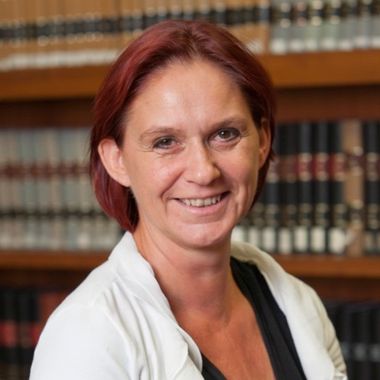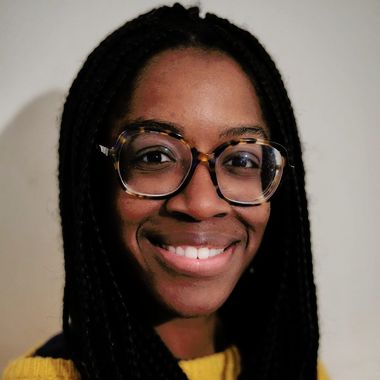- You are here:
- Homepage
- Events
- Past Events
- Women in Corrections Conference
- Programme

ICPA Welcome and Introduction
Plenary
ICPA Welcome and Introduction
8.45am – 9am EST, 19 February 2025 ‐ 15 mins
Plenary
Speakers

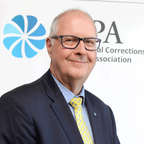
TIJ Welcome and Introduction
Plenary
TIJ Welcome and Introduction
9am – 9.30am EST, 19 February 2025 ‐ 30 mins
Plenary
Speakers


Kittipong Kittayarak
Chairperson of the Board of Directors, Thailand Institute of Justice, Thailand
Why Gender Matters: Creating Trauma Services for Justice-Involved Women (PID200)
Plenary
Why Gender Matters: Creating Trauma Services for Justice-Involved Women (PID200)
9.30am – 10.30am EST, 19 February 2025 ‐ 1 hour
Plenary
Speakers

Dr. Stephanie Covington
Co-Director/International Consultant and Clinician, Center for Gender and Justice, United States
Posters and Coffee Break
Posters and Coffee Break
Posters and Coffee Break
10.30am – 11am EST, 19 February 2025 ‐ 30 mins
Posters and Coffee Break
Co-Designing Gender-Responsive Practice with People Closest to the Challenge: Women’s Engagement through Communication, Action, Responsivity, and Education (WE CARE) (PID144)
Alexis Klemm M.S.
Graduate Research Assistant, Arizona State University Center for Correctional Solutions, Arizona State University, United States
Incarcerated Worker Cooperatives: Economically Empowering Women to Reduce Recidivism (PID016)

Susan Nembhard
Senior Research Associate/Graduate Assistant, Urban Institute/John Jay College of Criminal Justice/CUNY Graduate Center, United States
How Prison Legal Clinics can Increase Access to Justice for Women and the Use of Gender-Responsive Non-Custodial Measures (PID172)


Empowering Women in Corrections: Utilizing Gender-Sensitive Pedagogy and Critical Participatory Action Research as Levers of Change (PID164)

From Survival to Self-Sufficiency: Economic Empowerment and Therapy for Justice Involved Women (PID090)

A Critical Analysis of Strip Searches of Women Prisoners: International Human Rights Standards through the Bangkok Rules (PID034)

Niluka Gamalath LL.B (Hons), MCL, MHRD
Senior Lecturer, The Open University of Sri Lanka, Sri Lanka
Imprisonment and the Pathways into Prison, Highlighting the Trends, Women's Path to Prison and their Families and the Impact of Incarceration in the Kenyan Context (PID133)
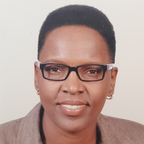
Salome Wairimu Muhia-Beacco
Principal Secretary, State Department for Correctional Services, Kenya

Major Problems in Implementing the Bangkok Rules in Poland: How to Raise Knowledge and Awareness of the Bangkok Rules Among Officers of the Prison Service? (PID174)

“We could never be the expert of somebody else’s life”: Perspectives of community support workers for Indigenous women implicated in the correctional system (PID147)
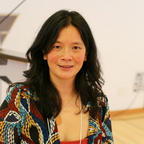
From Trauma-Informed to Trauma-Responsive: Programming for Trauma Survivors in Women’s Prisons (PID088)

Releasing Hope—Women’s Stories of Transition from Prison to Community (PID069)

From Incarceration to Entrepreneur: Breaking the Cycle of Recidivism through Education and Empowerment (PID085)


Jennifer Brown
Regional Facility Administrator, Management Training Corporation (MTC), United States
Can Digital Devices Alleviate Gendered Discrimination and Carceral Isolation? (PID108)



Restorative Justice for Incarcerated Women: Barriers, Motivations, and Pathways to Restoration (PID060)
Dr Dana Weimann Saks PhD
Senior Lecturer, Max Stern Yezreel Valley College, Yezreel Valley, Israel
Current State and Issues to Address in the Implementation of Imprisonment Sentences for Female Inmates in Mongolia (PID051)

Prof. Ochgerel Tsedevsodnom PhD
Head of the 407th Open and Closed Correctional Prison for Women, The General Executive Agency of Court Decision, Mongolia
Older Women in Prison: Vulnerabilities and Invisibilities at the Age-Gender Intersection (PID154)

Silvia Bernardo
PhD Research Fellow, University of Beira Interior & IPS_Innovative Prison Systems, Portugal

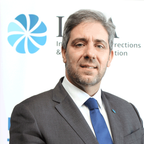
Older Women’s Pathways Into, Through, and Out of Prison in Thailand (PID096)

Behind Bars & Beyond Years: Addressing the Aging & End-of-Life Needs of Older Incarcerated Women (PID047)

Tosha Big Eagle
Lead Coordinator and Graduate Research Lead, Washington State University, United States

L. Elizabeth Shatswell
Correctional Education Manager and Academic Partner (UPS), JSTOR Labs Ithaka and University of Puget Sound, United States
Reimagining Justice: A Peace Culture Approach for Incarcerated Girls in Brazil (PID036)

The impact of therapeutic support and family connectedness in the Victorian women's prison system (PID169)
Innika LaFontaine
General Manager, Rehabilitation and Reintegration Branch, Corrections Victoria, Australia
Trends in South African Female imprisonment – Establishing the Needs of Female Offenders (PID171)

Dr Zodwa Mosoma PhD
Acting Deputy Commissioner, Department of Correctional Services, South Africa
Building a Gender-Responsive and Trauma-Informed Environment for the First Secular All-Women Residential and Rehabilitative Space in Singapore (PID129)

Saleha Rashidi
Centre Manager, Singapore Muslim Women’s Association (PPIS) - Rise Above Halfway House, Singapore
Nur Hamizah Abdul Rahim
Assistant Senior Social Worker, Singapore Muslim Women’s Association (PPIS) - Rise Above Halfway House, Singapore
Breaking the Cycle: The Far-Reaching Effects of Incarceration on Women and their Families’ Stability (PID077)

A successful three tire approach in managing mental health services at Kisumu women prison in Kenya (PID122)

Responding to the Bangkok Rules through Architecture (PID027)
Parallel Workshops
Responding to the Bangkok Rules through Architecture (PID027)
11am – 11.30am EST, 19 February 2025 ‐ 30 mins
Parallel Workshops
In this presentation Sarah will provide delegates with a series of architectural responses to each of the Bangkok Rules, providing built examples where possible. Whilst some of the rules appear not to relate to the built environment, this presentation will show how architects can respond to the objectives of the Bangkok Rules and create therapeutic and healing environments that are truly responsive to the particular needs of women deprived of their liberty.Research has verified that careful consideration of spaces and layouts, combined with the use of appropriate materials and detailing can assist in reducing the negative impact of the built environment on incarcerated women. By providing well-considered facilities that support positive programs and behaviors, further improvements to outcomes are more likely, and better practices are able to be embedded. This presentation seeks to link these design based solutions with the Bangkok Rules.
Speakers

The Poetic Justice Children’s Literature Project: Restoring and Restorying the Mother-Child Relationship through Self-Published Children’s Literature (PID029)
Parallel Workshops
The Poetic Justice Children’s Literature Project: Restoring and Restorying the Mother-Child Relationship through Self-Published Children’s Literature (PID029)
11am – 11.30am EST, 19 February 2025 ‐ 30 mins
Parallel Workshops
Amber pleaded with officers to cuff her outside the home, away from her child.
Koi’s daughter is now 9 and beginning to question the lies created by her foster parents about where her mom actually is.
Speakers


Sam Bhatia
Poetic Justice Assistant PD & Lead Teaching Artist, Poetic Justice, United States

Dr. Reka Bartona
Assistant Professor: Department of Teaching and Learning, Policy and Leadership, University of Maryland, United States
From Policy to Practice: Mountjoy Female Prison: A Journey Towards Rehabilitation at the Dóchas Centre – 25 Years of the ‘Centre of Hope’ (PID099)
Parallel Workshops
From Policy to Practice: Mountjoy Female Prison: A Journey Towards Rehabilitation at the Dóchas Centre – 25 Years of the ‘Centre of Hope’ (PID099)
11am – 11.30am EST, 19 February 2025 ‐ 30 mins
Parallel Workshops
In 1999, a transformation took place in the Irish Prison Service with the establishment of the Dóchas Centre, a medium-security facility designed specifically for women. This innovative approach represented a shift in how female prisoners are perceived and treated, moving away from traditional prison norms to create a more rehabilitative environment.The Dóchas Centre, whose name means "hope" in Irish, aims to provide a living experience that resembles ordinary accommodation rather than the harsh realities of prison life. This reimagining of incarceration is important in how women are treated within the facility. Instead of being referred to as "inmates," women are seen as individuals, which fosters a sense of dignity and respect.
Integral to the Dóchas Centre’s framework are the care pathways that balance safety, advocacy, and rehabilitation. These pathways rely on a comprehensive suite of services, including education, healthcare, psychological support, and work training. We embrace a whole-prison approach that values each woman's unique story, emphasising trauma-informed care.
In alignment with the Bangkok Rules, the Dóchas Centre implements gender-specific and trauma-informed strategies tailored to meet the unique needs of its female population.
The Dóchas Centre as a beacon of hope, prioritizing a supportive and rehabilitative environment tailored to the unique needs of women in custody. Through its innovative practices and comprehensive programs, it encourages rehabilitation, aims to foster successful reintegration into society, demonstrating that a compassionate approach can lead to meaningful change in the lives of women who have faced significant challenges.
Speakers


Donna Creaven
Director, EuroPris - European Organisation of Prison and Correctional Services, Europe
(Cancelled) Understanding the Pathways to Imprisonment and Empowering Women Behind Bars: VOPS' Comprehensive Rehabilitation and Reintegration Programs in Cameroon (PID020)
Parallel Workshops
(Cancelled) Understanding the Pathways to Imprisonment and Empowering Women Behind Bars: VOPS' Comprehensive Rehabilitation and Reintegration Programs in Cameroon (PID020)
11am – 11.30am EST, 19 February 2025 ‐ 30 mins
Parallel Workshops
- Empowering women through education, skills training, and entrepreneurship
- Addressing intersectional needs for sustainable reintegration
- Collaborative efforts with government agencies and local businesses
Takeaways:
- Effective strategies for rehabilitation and reintegration
- Opportunities for collaboration and scaling impact
Join the Conversation:
Speakers


Maisala Ernest
Judicial Assistant, Victim Offender Prison Care Support (VOPS)/ Ministry of Justice, Cameroon
Gender-Responsive Prison Reform In Countries Supported By UNODC (PID159)
Parallel Workshops
Gender-Responsive Prison Reform In Countries Supported By UNODC (PID159)
11am – 12pm EST, 19 February 2025 ‐ 1 hour
Parallel Workshops
The workshop will bring together experts from three countries in different regions assisted by the United Nations Office on Drugs and Crime (UNODC), to showcase achievements and results in the practical application of the Bangkok Rules. They will bring perspectives from different types of actors involved in the application of the Bangkok Rules, sharing their insights on how UNODC technical assistance has influenced national prison reform efforts towards more gender-responsive approaches, highlight persisting gaps and challenges, and identify what support and technical assistance will be needed to achieve sustainable improvements in relation to women prisoners’ health, safety and social reintegration prospects.Speakers
Responding to Gendered Harms in the US: The Bangkok Rules in Application (PID109)
Parallel Workshops
Responding to Gendered Harms in the US: The Bangkok Rules in Application (PID109)
11am – 12.30pm EST, 19 February 2025 ‐ 1 hour 30 mins
Parallel Workshops
Globally, women in prison face many forms of discrimination and other consequences of gender inequality and inequity in carceral settings. Prisons and other forms of criminal justice sanctions have long been used to respond to criminalized behavior of female and non-gender conforming persons with little thought to the gendered harms of imprisonment and the damaging impact of a gender-neutral approach. The Bangkok and Mandela Rules provides guidance for responding to these harms through a gender-responsive and human rights approach. This panel will describe the application of the Bangkok Rules in U.S. settings, supplemented by a global approach to safety advanced by Justice Detention International. A selection of gendered harms will be detailed within this framework through the application of selected Rules: sexual safety; peer support and collaboration; educational rehabilitation needs; prison management; and non-custodial measures. Presenters include those with lived experience, prison managers, policy makers and researchers.Speakers

Dawn Davison

Julie Tennant-Caine
Emma Hughes
Stephanie Torres
Wendy Still
Experiences from Denmark's First Women’s Prison (PID119)
Parallel Workshops
Experiences from Denmark's First Women’s Prison (PID119)
11.30am – 12pm EST, 19 February 2025 ‐ 30 mins
Parallel Workshops
The presentation will provide insights from Denmark's first women’s prison, established in Jyderup in 2021 following a renewal and extension of an existing men’s facility. The background for establishing the women’s prison was the need to create a secure and differentiated environment for female inmates, who previously served their sentences in men’s prisons, experiencing insecurity and harassment. The project, managed by Alex Poulsen Architects as the lead architect and consultant, was executed under unique circumstances, with construction occurring while the men’s prison was in operation, and during the COVID-19 pandemic. The objective was to enhance conditions for women’s incarceration and rehabilitation.After three years of operation, experiences have been gathered through interviews, visits, and publications, covering topics such as security, social relations, relations with children, employment, education, and mental health challenges. These insights demonstrate how the women’s prison addresses the specific needs of female inmates and whether the objectives of safety and relevant rehabilitation have been achieved. This knowledge serves as a foundation for the planning and design of future women’s prisons, ensuring a well-informed approach that better accommodates the unique needs of women in incarceration.
Speakers


Jonas Hviid Mønster
Partner, Head Business and Process Development, Alex Poulsen Architects, Denmark
Incarcerated Mothers and Their Children: Addressing Challenges, Providing Support and Developing Sustainable Solutions (PID079)
Parallel Workshops
Incarcerated Mothers and Their Children: Addressing Challenges, Providing Support and Developing Sustainable Solutions (PID079)
11.30am – 12pm EST, 19 February 2025 ‐ 30 mins
Parallel Workshops
This paper examines, in line with themes 1 and 5, the challenges faced by incarcerated mothers in Türkiye and their young children (aged 0-6) who reside with them in prison. As of September 30, 2024, there are 15,672 women in Turkish prisons, with 753 children living alongside them. Recognizing the unique needs of these families, Turkish law incorporates positive discrimination measures to ensure their specific requirements are met.The General Directorate of Prisons and Detention Houses offers comprehensive psychosocial support, including a “Parenting Education Program” for mothers and “Daily Living Skills Training” for children. Institution personnel receive specialized training to foster appropriate interactions with these vulnerable groups.
To further support the development of these children, mother-child units and child-friendly spaces are being introduced within prisons, including play areas for children aged 0-3 and kindergartens for children aged 3-6. Currently, several kindergartens and play areas are operational within the prison system, creating a more supportive environment. Collaborative initiatives with public institutions and civil society continue to enhance these programs and raise awareness about the needs of incarcerated mothers and their children.
Speakers
Gizem Arslan
Administrative Officer, General Directorate of Prisons and Detention Houses, Türkiye
A Cross Discipline Approach to Reducing the Force Experienced by Women in Prison (PID156)
Parallel Workshops
A Cross Discipline Approach to Reducing the Force Experienced by Women in Prison (PID156)
11.30am – 12pm EST, 19 February 2025 ‐ 30 mins
Parallel Workshops
This talk outlines the steps that were taken to provide cross-profession tailored support aimed at minimising the need for force in the adult Women’s estate in England and Wales. Inspectorate feedback for two sites in the women’s estate identified issues regarding force relating to ligature and self-harm. Specifically, they identified a need for group level assurance and support surrounding the use of alternative clothing. The response to this was to convene the Managing Women in Crisis Working Group. The group considered the evidence from research, partnered with psychology services, offered sites additional refresher and up-skill training days, and issued new operational guidance. The talk outlines how the new approach was piloted, and the findings from the trial. Initial indications from early adopter sites show the approach resulted in an 88% decrease in the use of alternative clothing, coupled with a 57% decrease in staff assaults and a 60% decrease in use of force incidents (April – August 2024). The implications of the cross-profession working group and tailored support appears to have had an impact beyond the original scope of the aims regarding alternative clothing. Since the additional support was given to the Women’s estate, all force in the women’s estate reduced, with an average of 80 fewer incidents of force per month. The talk concludes by discussing the ongoing support offered to sites, and reflections and learning from this approach, and some of the other challenges we face in supporting women.Speakers


Women’s Pathways Into Prison: Cycles of Harm (PID026)
Parallel Workshops
Women’s Pathways Into Prison: Cycles of Harm (PID026)
11.30am – 12pm EST, 19 February 2025 ‐ 30 mins
Parallel Workshops
A matter of (inter)national concern is the fast-growing presence of women in the prison system; while still small in numbers, they are growing at a faster rate than male prisoners. Between 2000 and 2022, the number of women and girls in prison increased by nearly 60% while the number of men increased by approximately 22% (Fair & Walmsley, 2022). The same is the case for West Australia (WA). WA always had a high imprisonment rate for women: in June 2023, the female imprisonment rate is 60 out of 100,000 adults, which is twice the Australian average (30). The Indigenous women’s imprisonment rate is the highest of all jurisdictions within Australia (Australian Bureau of Statistics, 2024). Given the significant and ongoing increase of women in prison, we conducted a ‘Profile of Women in WA Prison research’. The qualitative part of the project consists of interviews with 80 women spread over 4 metropolitan prisons: Bandyup (remand and sentenced), Boronia (pre-release), Melaleuca (remand) and Wandoo (drug and alcohol treatment) and 4 regional prisons (Eastern Goldfields, West Kimberley, Greenough and Roebourne) in WA. This paper focusses on the lived experiences from the voices of the 80 imprisoned women. We will argue that in stopping and addressing the increase of women in prison, we need to move away from the individual ‘offender-focused’ approach and look at the broader systemic context that lets these women down until they end up in the prison system.Speakers

Creating Better Models for the Design of Women-centered Secure Treatment Facilites (PID162)
Parallel Workshops
Creating Better Models for the Design of Women-centered Secure Treatment Facilites (PID162)
12pm – 12.30pm EST, 19 February 2025 ‐ 30 mins
Parallel Workshops
In the past several decades, the number of justice-involved women and gender non-conforming people has grown exponentially all over the world. Their biographies and pathways to crime differ significantly from those of cisgender men, bringing with them very distinctive needs, complex histories of trauma, and unique circumstances once incarcerated. Yet, a large proportion of women continue to be held in custodial facilities originally designed for and by men.The mission, purpose and program requirements for women facilities are very different considering the unique needs of this population and the greater ability to positively influence their lives and futures. Contemporary purpose-built, and women-centered facilities should employ trauma-informed, therapeutic, and evidence-based design principles for housing, visiting, vocational and life skills, medical, behavioral health, and other core services and programs. The buildings, their configuration and layouts should promote community-building and living. Residents should be broken down into small cohorts and accommodated in small-scale, home-like settings. Female facilities are more successful when buildings are grouped to conform small living communities, where women live and work together to plan meals, cook, develop budgets, and deal with practical problems as they would have to face in the outside world. Finally, this session will discuss evidence-based research and provide examples of designed and built campuses that employ the principles of trauma-informed, normalized and therapeutic accommodation.
Speakers

Dior Lindsey-Virgil
Project Manager, Children Youth Services, The Osborne Association, United States

System-involved and Formerly-Incarcerated Mothers Materializing Grief (PID056)
Parallel Workshops
System-involved and Formerly-Incarcerated Mothers Materializing Grief (PID056)
12pm – 12.30pm EST, 19 February 2025 ‐ 30 mins
Parallel Workshops
How do formerly incarcerated and system involved mothers experience grief? How do they develop cultures of care amidst the stigmatization of losing children? This presentation will dive into the everyday forms of grief that persist among women’s lives after losing children. Through the analysis of 27 photo elicitation life histories, these stories will reveal how various forms of family separation, including from incarceration and loss of child custody, offer new insights into the coexistence of grief and care. Through visual storytelling, this presentation will highlight the complex ways in which recovery processes impact the well-being of entire families. By examining the punishment women face through the lens of grief, this discussion will create opportunities to connect broader patterns of punishment with familial health.Speakers

Can Risk Assessment be Empowering? Yes! Adopt A Strength-Based Approach! (PID149)
Parallel Workshops
Can Risk Assessment be Empowering? Yes! Adopt A Strength-Based Approach! (PID149)
12pm – 12.30pm EST, 19 February 2025 ‐ 30 mins
Parallel Workshops
Strength-based perspectives are increasingly being incorporated into rehabilitative paradigms. By the end of this workshop, participants will be able to: (1) understand the scholarly foundation that underpins strength-based research, (2) recognize strengths in their clients, (3) identify evidence-based strength measures that can be used with justice impacted girls and women, (4) understand strength-based research emerging from my Gender and Crime research lab, and (5) appreciate the challenges associated with identifying strengths in higher risk clients. The research from my lab that I will highlight includes (1) strength-based assessment tools such as the Service Planning Instrument (SPIn, Orbis Partners, 2003) and the Youth Assessment Screening Instrument (YASI, Orbis, 2000), (2) meta-analyses designed to learn more about the relationship between strengths and re-offending in female and gender diverse populations, (3) our work with the Probation Service Assessment Planner (PSAP-25, Brown & Bhutta, 2023); the PSAP was developed as a culturally and gender responsive strength-based assessment protocol for women on probation in Punjab, Pakistan, and lastly, (4) research illustrating that strengths can improve program outcomes in a mixed gendered sample of youth on probation in Ontario, Canada. I will use a combination of lecturing, interactive polling strategies, and case studies to meet my learning outcomes. Ultimately, I aim to share the strength-based assessment scholarly literature in a manner that will encourage more researchers and practitioners to incorporate a strength-based lens into their daily research practices and/or interactions with justice impacted girls and women.Speakers

A Critical Analysis of the Bangkok Rules: Examining Implementation Gaps for Justice-Impacted Women in the U.S. (2010-2024) (PID039)
Parallel Workshops
A Critical Analysis of the Bangkok Rules: Examining Implementation Gaps for Justice-Impacted Women in the U.S. (2010-2024) (PID039)
12pm – 12.30pm EST, 19 February 2025 ‐ 30 mins
Parallel Workshops
Despite legislative victories in 23 states that aim to improve conditions for incarcerated women, the reality remains grim. A lack of data collection, oversight, and standardization prevents meaningful progress. Without clear metrics, there is no way to measure compliance with the Bangkok Rules, leaving gaps in care unaddressed. Moreover, the absence of accountability mechanisms allows correctional facilities to continue violating women’s rights with little consequence.
What makes the case for change even more urgent is the sidelining of directly impacted women in shaping policy. Without their voices at the forefront, policies are often poorly informed, leading to selective or incomplete implementation of the Bangkok Rules. This summary calls for stronger accountability, robust data tracking, and the active involvement of justice-impacted women in decision-making to ensure that the Bangkok Rules are fully and effectively enforced, protecting the rights and dignity of incarcerated women across the U.S..
Speakers



Global Approaches to Dignity: Mapping Good Practices in the Management of Transgender Prisoners (PID053)
Parallel Workshops
Global Approaches to Dignity: Mapping Good Practices in the Management of Transgender Prisoners (PID053)
12pm – 12.30pm EST, 19 February 2025 ‐ 30 mins
Parallel Workshops
Transgender prisoners often face increased risks of violence, discrimination, and limited access to appropriate healthcare. In response, UNDP conducted a comprehensive study of global practices in transgender prisoner management, identifying good practices from diverse countries, including Thailand, that prioritize the dignity, safety, and rights of transgender inmates.This session will present findings from UNDP’s mapping of inclusive correctional policies, covering effective strategies in classification, placement, healthcare, and staff training. By sharing insights from multiple countries, the presentation aims to inspire dialogue on implementing humane, rights-based approaches within correctional facilities worldwide. Participants will leave with an understanding of how diverse correctional systems address the specific needs of transgender prisoners and actionable recommendations for fostering inclusive practices in their own jurisdictions.
Speakers

Suparnee Jay Pongruengphant
Gender Equality and Social Inclusion Advisor, United Nations Development Programme (UNDP), Thailand
Posters and Lunch
Posters & Lunch
Posters and Lunch
12.30pm – 2pm EST, 19 February 2025 ‐ 1 hour 30 mins
Posters & Lunch
Co-Designing Gender-Responsive Practice with People Closest to the Challenge: Women’s Engagement through Communication, Action, Responsivity, and Education (WE CARE) (PID144)
Alexis Klemm M.S.
Graduate Research Assistant, Arizona State University Center for Correctional Solutions, Arizona State University, United States
Incarcerated Worker Cooperatives: Economically Empowering Women to Reduce Recidivism (PID016)

Susan Nembhard
Senior Research Associate/Graduate Assistant, Urban Institute/John Jay College of Criminal Justice/CUNY Graduate Center, United States
How Prison Legal Clinics can Increase Access to Justice for Women and the Use of Gender-Responsive Non-Custodial Measures (PID172)


Empowering Women in Corrections: Utilizing Gender-Sensitive Pedagogy and Critical Participatory Action Research as Levers of Change (PID164)

From Survival to Self-Sufficiency: Economic Empowerment and Therapy for Justice Involved Women (PID090)

Empowering Women in Prison: Leveraging Technology for a Trauma-Informed Approach (PID176)
Sarah Spence
Marketing Specialist, MHS, United Kingdom

A Critical Analysis of Strip Searches of Women Prisoners: International Human Rights Standards through the Bangkok Rules (PID034)

Niluka Gamalath LL.B (Hons), MCL, MHRD
Senior Lecturer, The Open University of Sri Lanka, Sri Lanka
Imprisonment and the Pathways into Prison, Highlighting the Trends, Women's Path to Prison and their Families and the Impact of Incarceration in the Kenyan Context (PID133)

Salome Wairimu Muhia-Beacco
Principal Secretary, State Department for Correctional Services, Kenya


Major Problems in Implementing the Bangkok Rules in Poland: How to Raise Knowledge and Awareness of the Bangkok Rules Among Officers of the Prison Service? (PID174)

“We could never be the expert of somebody else’s life”: Perspectives of community support workers for Indigenous women implicated in the correctional system (PID147)

From Trauma-Informed to Trauma-Responsive: Programming for Trauma Survivors in Women’s Prisons (PID088)

Releasing Hope—Women’s Stories of Transition from Prison to Community (PID069)

From Incarceration to Entrepreneur: Breaking the Cycle of Recidivism through Education and Empowerment (PID085)


Jennifer Brown
Regional Facility Administrator, Management Training Corporation (MTC), United States
Can Digital Devices Alleviate Gendered Discrimination and Carceral Isolation? (PID108)



Restorative Justice for Incarcerated Women: Barriers, Motivations, and Pathways to Restoration (PID060)
Dr Dana Weimann Saks PhD
Senior Lecturer, Max Stern Yezreel Valley College, Yezreel Valley, Israel
Current State and Issues to Address in the Implementation of Imprisonment Sentences for Female Inmates in Mongolia (PID051)

Prof. Ochgerel Tsedevsodnom PhD
Head of the 407th Open and Closed Correctional Prison for Women, The General Executive Agency of Court Decision, Mongolia
Older Women in Prison: Vulnerabilities and Invisibilities at the Age-Gender Intersection (PID154)

Silvia Bernardo
PhD Research Fellow, University of Beira Interior & IPS_Innovative Prison Systems, Portugal


Older Women’s Pathways Into, Through, and Out of Prison in Thailand (PID096)

Behind Bars & Beyond Years: Addressing the Aging & End-of-Life Needs of Older Incarcerated Women (PID047)

Tosha Big Eagle
Lead Coordinator and Graduate Research Lead, Washington State University, United States

L. Elizabeth Shatswell
Correctional Education Manager and Academic Partner (UPS), JSTOR Labs Ithaka and University of Puget Sound, United States
Reimagining Justice: A Peace Culture Approach for Incarcerated Girls in Brazil (PID036)

The impact of therapeutic support and family connectedness in the Victorian women's prison system (PID169)
Innika LaFontaine
General Manager, Rehabilitation and Reintegration Branch, Corrections Victoria, Australia
Trends in South African Female imprisonment – Establishing the Needs of Female Offenders (PID171)

Dr Zodwa Mosoma PhD
Acting Deputy Commissioner, Department of Correctional Services, South Africa
Building a Gender-Responsive and Trauma-Informed Environment for the First Secular All-Women Residential and Rehabilitative Space in Singapore (PID129)

Saleha Rashidi
Centre Manager, Singapore Muslim Women’s Association (PPIS) - Rise Above Halfway House, Singapore
Nur Hamizah Abdul Rahim
Assistant Senior Social Worker, Singapore Muslim Women’s Association (PPIS) - Rise Above Halfway House, Singapore
Breaking the Cycle: The Far-Reaching Effects of Incarceration on Women and their Families’ Stability (PID077)

A successful three tire approach in managing mental health services at Kisumu women prison in Kenya (PID122)

Lead Like a Woman - Advancing Women in Leadership in Correctional Services (PID094)
Parallel Workshops
Lead Like a Woman - Advancing Women in Leadership in Correctional Services (PID094)
2pm – 2.30pm EST, 19 February 2025 ‐ 30 mins
Parallel Workshops
This session will deliver an engaging, light and entertaining tale of women in leadership in Corrections, an industry that has historically been male dominated. Hayley, as an experienced and proud leader in Corrections heading up Statewide Operations in South Australia will share aspects of her journey with the audience with a gendered lens. The aim of the session will be to leave participants with a number of practical takeaways to consider in their jurisdictions to advance women in leadership.The session will leave attendees with an understanding of why women in leadership roles is essential in Correctional Services and a number of strategies that South Australia deploys from recruitment, professional development, and selection processes for promotional roles.
The South Australian Correctional System recently won an ICPA award in Singapore for the Tomorrow Senior Manager’s Program that has seen a number of women develop into leadership roles running large prisons and community correctional centres, including Executive leadership roles. Hayley will share the key features of this program to inspire other jurisdictions in formulating their leadership development programs.
The Women Offender’s Framework in South Australia is the strategic vision for working with female offenders and Hayley will share the key elements of this vision and how this is being delivered with a focus on the importance of women in key leadership roles.
Finally, Hayley will focus on the importance of successful female leaders giving back and enabling other women in the sector. Practical examples of this will be shared with attendees.
Speakers

Hayley Mills M.Psych (Forensic); MBA
Deputy Chief Executive, Department for Correctional Services South Australia, Australia
Factors Supporting Women's Successful Reintegration: A Holistic Approach in Uganda (PID064)
Parallel Workshops
Factors Supporting Women's Successful Reintegration: A Holistic Approach in Uganda (PID064)
2pm – 2.30pm EST, 19 February 2025 ‐ 30 mins
Parallel Workshops
This presentation will highlight the best practices and approaches in Uganda towards the Reintegration of Women Offenders.The changing profile of women prisoners cuts across the age divide, with new sentencing guidelines in Uganda seeing more women being kept in prison for long sentences. Their reintegration needs are equally more challenging. This is largely because women are more disproportionately affected by imprisonment than men; Societal perception of women involved in the Justice system, Patriarchal systems that tend to lock out women from ownership of land and resources, and low levels of literacy present challenges for women to fit back in Society.
This paper will address the unique approaches used to foster improved reintegration outcomes for Women offenders; breaking the stereotypes; to increase access for released women to more gainful employment, decent accommodation, securing their property rights and building their resilience and desistance from crime.
Uganda Prisons prioritizes 4 pillars of Social Reintegration; Health, Employment/ Education, Living needs and Personal relationships and professional contacts.
The presentation will demonstrate the successful approaches by Uganda Prisons Service; preparing Women Prisoners for release, collaborations for continued support, and the impact of peer mentorship programs in post-release support.
Speakers

Lydia Ssesanga M.A
Principal Rehabilitation and Reintegration Officer, Uganda Prisons Service, Uganda

Stella Atoo SP
Superintendent of Prisons Officer In Charge, Luzira Women Prison, Uganda Prisons Service, Uganda
Pathways and Treatment of Women Serving a Death or Life Imprisonment Sentence (PID143)
Parallel Workshops
Pathways and Treatment of Women Serving a Death or Life Imprisonment Sentence (PID143)
2pm – 2.30pm EST, 19 February 2025 ‐ 30 mins
Parallel Workshops
Over 500 women are currently on death row globally, often for crimes such as murder or drug trafficking, frequently committed within contexts of poverty, gender-based violence, or discrimination. Women represent about 5% of the death row population, and 3% of those serving formal life sentences, a figure that is expected to grow with the rising female prison population.This presentation will address the pathways to imprisonment and prison conditions for women serving extreme sentences. Focusing on human rights and gender-specific needs, it will advocate for applying the Bangkok Rules to improve prison conditions and support reform efforts.
The session will explore three main areas: pathways to imprisonment, highlighting issues such as systemic discrimination and unacknowledged trauma; prison conditions, noting severe psychological challenges like ‘death row syndrome’; and implementing the Bangkok Rules, discussing the gaps in current correctional practices. A speaker with death row experience will provide insights on systemic issues and reforms.
Organisations like Penal Reform International, the Cornell Center on the Death Penalty Worldwide, and the World Coalition against the Death Penalty support this initiative, aiming to enhance understanding and protection for this vulnerable group. The session will conclude with a Q&A, exploring questions around integrating gender-responsive approaches into justice systems and the role of women with lived experience in shaping policy. The call for better data and research underscores the need to address the unique needs of women facing death or life imprisonment sentences.
Speakers


Susan Kigula Natoolo
Lawyer, International Human Rights and Anti-Death Penalty Activist

Rehabilitation Program for Female Drug-Abuse Offenders in Thai Correctional Settings (PID092)
Parallel Workshops
Rehabilitation Program for Female Drug-Abuse Offenders in Thai Correctional Settings (PID092)
2pm – 2.30pm EST, 19 February 2025 ‐ 30 mins
Parallel Workshops
Pre-release preparation is provided, and post-release support is available through the Center for Assistant to Reintegration and Employment (CARE). Follow-up is provided after release through the National Drug Treatment Network (NTND) or referral to Community Rehabilitation Centers.
Speakers

Sappasit Phoomsuk
Medical Science Technician/ Head of Narcotics Rehabilitation Section, Department of Corrections, Thailand
Jarassa Karnkaset
Vocational Training Technical Officer, Senior Professional Level, Central Women's Correctional Institution, Department of Corrections, Thailand
A Woman's Journey Leading Healthcare in Jamaica's Correctional Centres (PID057)
Parallel Workshops
A Woman's Journey Leading Healthcare in Jamaica's Correctional Centres (PID057)
2pm – 2.30pm EST, 19 February 2025 ‐ 30 mins
Parallel Workshops
Dr. Donna Royer-Powe, a trailblazer in Jamaican correctional healthcare, shares her inspiring 20-year journey leading medical services in a challenging, male-dominated field. She recounts overcoming stigma, implementing innovative programs like a prison nursery and comprehensive women's health services, and fostering a supportive environment for female staff.Dr. Royer-Powe candidly discusses the unique challenges women face in corrections, including gender-based discrimination and harassment, and how she has championed a culture of respect. Her leadership during crises, including the COVID-19 pandemic, demonstrates resilience and adaptability.
This presentation offers a unique perspective on leadership, gender equity, and healthcare in the correctional system. It will inspire and empower women to break barriers, create positive change, and cross unchartered paths with confidence
Speakers

Dr Donna-Michelle Royer-Powe MPH
Director Medical Services, Department of Correctional Services, Jamaica
Championing Women in the Workplace within His Majesty’s Prisons & Probation Service and The British Overseas Territories (PID140)
Parallel Workshops
Championing Women in the Workplace within His Majesty’s Prisons & Probation Service and The British Overseas Territories (PID140)
2pm – 2.45pm EST, 19 February 2025 ‐ 45 mins
Parallel Workshops
Inspired by the CWW programme’s work, and in line with international guidance, the second part of the session will explore how the UK is trying to support some of the most remote and marginalised women working in corrections in its British Overseas Territories. The session will highlight the similarities and differences women working in His Majesty Prison in the Caribbean and beyond are facing, and how best we can account for a variety of cultural contexts outside of the UK. It will also explore how the UK is delivering on its international gender obligations through the setup of a cross British Overseas Territories Gender Network and the promotion of female use of force instructors.
We hope to have a dynamic workshop and create exciting opportunities to share best practice and learn from one another.
Speakers

Sarah McKnight
Deputy Director Education, Skills and Employment, His Majesty's Prison and Probation Service and Ministry of Justice, UK

Matt Grey
Executive Director for Rehabilitation, His Majesty’s Prison and Probation Service, UK
Gender and Prison Policies Across the Globe: A Feminist Policy Analysis Approach (PID113)
Parallel Workshops
Gender and Prison Policies Across the Globe: A Feminist Policy Analysis Approach (PID113)
2.30pm – 3pm EST, 19 February 2025 ‐ 30 mins
Parallel Workshops
This proposed presentation aims to discuss the first results of an international comparative research project that analyzes prison policies from a comparative feminist policy analysis perspective in the global south as well as the global north. The project looks to expand the interdisciplinarity of the studies on gender and prison by leveraging the analytical and theoretical tools of gender and politics literature as well as going beyond a focus on the global north. On the theoretical front, the research project provides a roadmap where academics and practitioners can find the key tools to approach the study of penal policies from feminist and gendered perspectives. It is built upon the analytical framework coming from the gender and policy field. On the empirical front, it shows a set of empirical cases where these analytical tools are applied. So far, the project has covered different countries, including the global south (Uruguay, Zimbabwe and Peru) and the global north (Denmark, Spain, Canada) and different components of the policy process (from formulation to implementation). In this presentation, I will share the first results of the comparative research project, showing the formulation and dynamics of implementation of gender equality policies in the countries of analysis. On the other hand, I will go into detail in one country in the global north-Spain and one country in the global South-Peru. Along with these case analyses, the presentation will include lessons learned from this project that can promote women’s rights in prison in line with the Bangkok rules.Speakers

Ana Ballesteros-Pena MSCA
Academic Senior Research Fellow , Complutense University of Madrid, Spain
The Not Knowing: Criminalised Women and Service Providers’ Experiences of Remand and Uncertainty in Victoria, Australia (PID041)
Parallel Workshops
The Not Knowing: Criminalised Women and Service Providers’ Experiences of Remand and Uncertainty in Victoria, Australia (PID041)
2.30pm – 3pm EST, 19 February 2025 ‐ 30 mins
Parallel Workshops
My study documents the lived experiences of women on remand and the service providers who support them in Victoria, Australia. In particular, how pains of uncertainty permeate their stories. My project centers criminalised women’s perspectives of remand incarceration, as well as exploring the challenges service providers face supporting them. Interviews with women affected by the criminal justice system demonstrated that those with lived experience of prison have valuable insights into potential policy and reform, informed by their pathways to custody and experiences of imprisonment. Their perspectives are augmented by those of the service providers, who contribute essential ideas about how the challenges they face in their work can be overcome. Interviews revealed the ways that court and prison systems created a pervasive sense of uncertainty – resulting in significant impacts on the well-being of women and their families and negative repercussions for service providers. Ultimately, my project demonstrates the importance of learning about the remand system from those in closest contact with it.Speakers

Healing the Wounds for a Successful Reintegration: Women’s Narratives Inside Two Italian Prisons (PID098)
Parallel Workshops
Healing the Wounds for a Successful Reintegration: Women’s Narratives Inside Two Italian Prisons (PID098)
2.30pm – 3pm EST, 19 February 2025 ‐ 30 mins
Parallel Workshops
Women in prison have often a previous experience of violence, from their relatives during their childhood or from their partners once adult. These experiences are usually ignored and they are often at the origin of the deviant behavior of women. Considering that the goal of punishment is the successful reintegration of the author of the crime (art. 27 of the Italian Constitution), it is necessary to tackle this problem at least when women are convicted and put in prison. A recent project, developed in two Italian prisons in 2024, offered women the opportunity to deal with their previous experiences of violence, supported by professionals of an anti-violence center.Speakers

Claudia Pecorella PhD
Full Professor of Criminal Law, University of Milano-Bicocca, Italy

Noemi Maria Cardinale PhD
Post-doc researcher in Criminal Law, University of Milano-Bicocca (IT), Italy
The Path to Women's Leadership Through the Journeys of Women Trailblazers (PID175)
Parallel Workshops
The Path to Women's Leadership Through the Journeys of Women Trailblazers (PID175)
2.30pm – 3.30pm EST, 19 February 2025 ‐ 1 hour
Parallel Workshops
Today’s leaders must be mission-driven and innovative, providing a clear vision for those they guide. This session features the journeys and lessons learned by top women leaders in the corrections industry, who have risen through elite private and government organizations.Attendees will gain insights from these seasoned professionals who have served both on the frontline and as executives. The panelists will share their career paths, keys to developing strong leadership teams, and how they cultivated their own leadership styles while often leading through crisis. Additionally, they will discuss how they tackled entrenched processes in traditional correctional systems and transformed those systems into progressive, reform driven environments. This interactive session encourages questions and dialogue throughout.
The panelists are all part of the past and present leadership of the Association of Women Executives in Corrections (AWEC). AWEC is the active voice of women executives in corrections working toward reasoned change and the development of future leaders. The desire to increase the leadership skills of female correctional executives and to develop the future generation of women correctional leaders has been longstanding and AWEC’s mission is to ensure it provides a pathway of opportunity and support for the growth and success of executive women.
Speakers



Panel on Re-entry and Re-integration (PID300)
Panel Discussion
Panel on Re-entry and Re-integration (PID300)
2.30pm – 3.30pm EST, 19 February 2025 ‐ 1 hour
Panel Discussion
This panelist examines the Beyond Bars Akademia (BBA), an initiative designed to empower formerly incarcerated women in South Africa. Rooted in Indigenous cultural principles, the program highlights the value of community connection, vocational training, and mental health prioritization.
Using qualitative interviews with 50 participants, this study identifies critical barriers to successful re-entry for women in Bangladesh, including unemployment, stigma, and a lack of institutional resources. The findings highlight the role of NGOs in bridging gaps in support and emphasize the need for targeted programs that address social exclusion and skill development to enable long-term reintegration.
This panelist shares findings from a two-stage qualitative study by the Women in Recovery Association (WIRA) in Singapore. By engaging women in recovery, the research uncovered specific needs such as career skills, family relationship support, and recreational opportunities. These insights have informed the development of tailored services, demonstrating the power of community-driven solutions for addressing the multifaceted challenges women face during re-entry.
The Pathways to Employment (P2E) program reduces stigma and builds bridges between women exiting custody and potential employers. Through pre- and post-release engagement and formalized agreements with employers, P2E has facilitated smoother transitions into the workforce.
Speakers
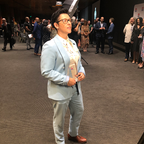





Lifting Women in Correctional Leadership: Strengthening Pathways to Empowerment and Change in the Haitian Prison Service (PID025)
Parallel Workshops
Lifting Women in Correctional Leadership: Strengthening Pathways to Empowerment and Change in the Haitian Prison Service (PID025)
2.45pm – 3.30pm EST, 19 February 2025 ‐ 45 mins
Parallel Workshops
HtW also champions innovative community-based strategies to extend care beyond prison walls. This includes employing community health workers to increase access to testing and treatment and ensure continuity of care for released prisoners. This approach not only addresses the immediate health needs of incarcerated individuals but also aids in their reintegration into society by connecting them with ongoing care.
Speakers

How a Gender-Responsive Approach to Corrections Promotes the Well-Being and Rehabilitation of Women in Custody (PID055)
Parallel Workshops
How a Gender-Responsive Approach to Corrections Promotes the Well-Being and Rehabilitation of Women in Custody (PID055)
3pm – 3.30pm EST, 19 February 2025 ‐ 30 mins
Parallel Workshops
Michele Deitch and Alycia Welch, two of the leading experts in the U.S. on the treatment of women in custody, will outline a framework for a gender-responsive approach to corrections and will discuss the ways in which the approach promotes the well-being and rehabilitation of women in custody. They will discuss women’s pathways to incarceration and describe how women experience incarceration differently than men. They will also explore the meaning of “gender-responsiveness” and explain why, at the core of a gender-responsive approach, all aspects of the facility must be rehabilitative. Drawing on examples of these approaches, Michele and Alycia will recommend more effective strategies for operating and managing women’s detention facilities and delivering programs and services to better meet women’s needs, ameliorate the harms women experience in custody, create a better work environment for staff, and achieve better outcomes for the women, their families, and the community.Speakers

Prof. Michele Deitch
Director, Prison and Jail Innovation Lab at the University of Texas at Austin, USA

Alycia Welch
Associate Director, Prison and Jail Innovation Lab, Lyndon B. Johnson School of Public Affairs, Univ. of Texas at Austin, USA
“Rinse and Repeat”, A Woman’s Experience of Non-Custodial Measures in the United States (PID032)
Parallel Workshops
“Rinse and Repeat”, A Woman’s Experience of Non-Custodial Measures in the United States (PID032)
3pm – 3.30pm EST, 19 February 2025 ‐ 30 mins
Parallel Workshops
This session will discuss women’s experiences with non-custodial measures from a US perspective, an academic perspective, and as someone who has lived these experiences. Women on non-custodial measures make up a unique aspect of the US correctional population. In the United States, 82% of the population of women under correctional supervision are under community corrections programs (probation, parole, drug court) (Prison Policy Initiative, 2019). Of those on probation, just over half successfully complete all sentencing sanctions, with recidivism and unsuccessful completion rates being higher for younger women (The Pew Charitable Trust, 2018).The majority of women on probation have committed nonviolent offenses: theft, fraud, public disorder, driving under the influence. These women often have a high comorbidity rate of mental health and substance abuse problems and are more likely to be prior victims of abuse. Non-custodial measures keep women connected with their family, community, and social anchors more than being incarcerated, but difficulties in managing these sanctions results in a large percentage of women failing to complete the sentence, or completing the sanctions, but getting arrested for something similar and put on non-custodial sanctions again. Consequently, non-custodial measures can sometimes feel like a “rinse and repeat” process, especially if it is not the first time the person has received a community sentence. Given that the US has a significantly higher rate of women on community sanctions compared to other countries, understanding the experiences of non-custodial sentences is necessary to address long-term desistance and rehabilitation.
Speakers

Gender, Job Satisfaction, and Workplace Culture: Trends and Implications for Recruiting and Retaining Correctional Staff (PID082)
Parallel Workshops
Gender, Job Satisfaction, and Workplace Culture: Trends and Implications for Recruiting and Retaining Correctional Staff (PID082)
3pm – 3.30pm EST, 19 February 2025 ‐ 30 mins
Parallel Workshops
Drawing on survey data from over 1,000 correctional officers across five prisons in the United States, this presentation examines differences between female and male officers in job satisfaction and perceptions of workplace culture. Prisons in the United States have historically been – and arguably still very much are – masculinized environments that have not been amenable to female staff. Women make up only 28% of the U.S. correctional workforce, making their recruitment and retention important priorities for prisons seeking to augment female staff. Understanding how female and male officers differ on important issues of job satisfaction and workplace culture can provide insight into how prisons might accomplish these goals. This presentation will examine how gender interacts with other important variables such as age, race, and job duties. Our discussion will focus on the practical implications of the findings for those in prison leadership roles.Speakers


Posters and Coffee Break
Posters and Coffee Break
Posters and Coffee Break
3.30pm – 4pm EST, 19 February 2025 ‐ 30 mins
Posters and Coffee Break
Co-Designing Gender-Responsive Practice with People Closest to the Challenge: Women’s Engagement through Communication, Action, Responsivity, and Education (WE CARE) (PID144)
Alexis Klemm M.S.
Graduate Research Assistant, Arizona State University Center for Correctional Solutions, Arizona State University, United States
Incarcerated Worker Cooperatives: Economically Empowering Women to Reduce Recidivism (PID016)

Susan Nembhard
Senior Research Associate/Graduate Assistant, Urban Institute/John Jay College of Criminal Justice/CUNY Graduate Center, United States
How Prison Legal Clinics can Increase Access to Justice for Women and the Use of Gender-Responsive Non-Custodial Measures (PID172)


Empowering Women in Corrections: Utilizing Gender-Sensitive Pedagogy and Critical Participatory Action Research as Levers of Change (PID164)

From Survival to Self-Sufficiency: Economic Empowerment and Therapy for Justice Involved Women (PID090)

Empowering Women in Prison: Leveraging Technology for a Trauma-Informed Approach (PID176)
Sarah Spence
Marketing Specialist, MHS, United Kingdom

A Critical Analysis of Strip Searches of Women Prisoners: International Human Rights Standards through the Bangkok Rules (PID034)

Niluka Gamalath LL.B (Hons), MCL, MHRD
Senior Lecturer, The Open University of Sri Lanka, Sri Lanka
Imprisonment and the Pathways into Prison, Highlighting the Trends, Women's Path to Prison and their Families and the Impact of Incarceration in the Kenyan Context (PID133)

Salome Wairimu Muhia-Beacco
Principal Secretary, State Department for Correctional Services, Kenya


Major Problems in Implementing the Bangkok Rules in Poland: How to Raise Knowledge and Awareness of the Bangkok Rules Among Officers of the Prison Service? (PID174)

“We could never be the expert of somebody else’s life”: Perspectives of community support workers for Indigenous women implicated in the correctional system (PID147)

From Trauma-Informed to Trauma-Responsive: Programming for Trauma Survivors in Women’s Prisons (PID088)

Releasing Hope—Women’s Stories of Transition from Prison to Community (PID069)

From Incarceration to Entrepreneur: Breaking the Cycle of Recidivism through Education and Empowerment (PID085)


Jennifer Brown
Regional Facility Administrator, Management Training Corporation (MTC), United States
Can Digital Devices Alleviate Gendered Discrimination and Carceral Isolation? (PID108)



Restorative Justice for Incarcerated Women: Barriers, Motivations, and Pathways to Restoration (PID060)
Dr Dana Weimann Saks PhD
Senior Lecturer, Max Stern Yezreel Valley College, Yezreel Valley, Israel
Current State and Issues to Address in the Implementation of Imprisonment Sentences for Female Inmates in Mongolia (PID051)

Prof. Ochgerel Tsedevsodnom PhD
Head of the 407th Open and Closed Correctional Prison for Women, The General Executive Agency of Court Decision, Mongolia
Older Women in Prison: Vulnerabilities and Invisibilities at the Age-Gender Intersection (PID154)

Silvia Bernardo
PhD Research Fellow, University of Beira Interior & IPS_Innovative Prison Systems, Portugal


Older Women’s Pathways Into, Through, and Out of Prison in Thailand (PID096)

Behind Bars & Beyond Years: Addressing the Aging & End-of-Life Needs of Older Incarcerated Women (PID047)

Tosha Big Eagle
Lead Coordinator and Graduate Research Lead, Washington State University, United States

L. Elizabeth Shatswell
Correctional Education Manager and Academic Partner (UPS), JSTOR Labs Ithaka and University of Puget Sound, United States
Reimagining Justice: A Peace Culture Approach for Incarcerated Girls in Brazil (PID036)

The impact of therapeutic support and family connectedness in the Victorian women's prison system (PID169)
Innika LaFontaine
General Manager, Rehabilitation and Reintegration Branch, Corrections Victoria, Australia
Trends in South African Female imprisonment – Establishing the Needs of Female Offenders (PID171)

Dr Zodwa Mosoma PhD
Acting Deputy Commissioner, Department of Correctional Services, South Africa
Building a Gender-Responsive and Trauma-Informed Environment for the First Secular All-Women Residential and Rehabilitative Space in Singapore (PID129)

Saleha Rashidi
Centre Manager, Singapore Muslim Women’s Association (PPIS) - Rise Above Halfway House, Singapore
Nur Hamizah Abdul Rahim
Assistant Senior Social Worker, Singapore Muslim Women’s Association (PPIS) - Rise Above Halfway House, Singapore
Breaking the Cycle: The Far-Reaching Effects of Incarceration on Women and their Families’ Stability (PID077)

A successful three tire approach in managing mental health services at Kisumu women prison in Kenya (PID122)

15 Years of the Bangkok Rules: A Journey Toward Gender-Responsive Justice (PID160)
Plenary
15 Years of the Bangkok Rules: A Journey Toward Gender-Responsive Justice (PID160)
4pm – 5pm EST, 19 February 2025 ‐ 1 hour
Plenary
As we approach the 15th anniversary of the adoption of the Bangkok Rules in December 2025, this plenary session provides an opportunity to reflect on their significance and celebrate the progress made in advancing the rights and well-being of women in prison worldwide. Over the past decade and a half, the Bangkok Rules have played an important role in shaping gender-responsive policies and practices, ensuring that the unique needs of women in detention are recognized and addressed.
This session will bring together a diverse panel of experts from government, academia, and civil society to discuss key achievements, persistent challenges, and emerging opportunities in the implementation of the Bangkok Rules. Through insightful discussions, the panel will explore innovative approaches to gender-sensitive prison management, alternatives to incarceration, and strategies for strengthening social reintegration. By fostering dialogue among stakeholders, this plenary aims to generate renewed commitment to gender-responsive justice and inspire collaborative efforts toward more humane and effective correctional system.
Speakers

Chontit Chuenurah
Director of the Office for the Bangkok Rules and Treatment of Offenders, Thailand Institute of Justice, Thailand



A Feature Documentary Film (PID019)
Parallel Workshops
A Feature Documentary Film (PID019)
5pm – 7pm EST, 19 February 2025 ‐ 2 hours
Parallel Workshops
A group of Incarcerated women prisoners sign up to learn an instrument and write their own songs as part of a music program in an Australian prison. The women - who come to the program low in confidence and self-worth - are quickly thrown into a world of creativity and blossoming self-determination. But the process also opens up deep scars around trauma and addiction, threatening a once-in-a-lifetime prison performance alongside the Adelaide Symphony Orchestra.
Speakers

Hayley Mills M.Psych (Forensic); MBA
Deputy Chief Executive, Department for Correctional Services South Australia, Australia
(In)Justice for Women: A Screening and Conversation with Dr. Baz and Nora Calandra (PID114)
Parallel Workshops
(In)Justice for Women: A Screening and Conversation with Dr. Baz and Nora Calandra (PID114)
5pm – 7pm EST, 19 February 2025 ‐ 2 hours
Parallel Workshops
Five years later, Nora is an acclaimed government official: the Sub-secretary for Labor and Inclusion for the Buenos Aires Provincial Government. She is also a 2023 Global Freedom Fellow and has traveled to Brazil, South Africa and Colombia in the name of justice. In this session we screen the docuseries episode and Dr. Baz interviews Nora about her incredible journey, before the film and after.
Speakers


Nora Calandra
Subsecretary of Labor and Inclusion, The Province of Buenos Aires, Argentina

João Barbosa
Global Coordinator & South America Team Leader , Incarceration Nations Network, Brazil
Kindness as a Catalyst: Connecting Hearts to Transform Corrections for Families (PID043)
Parallel Workshops
Kindness as a Catalyst: Connecting Hearts to Transform Corrections for Families (PID043)
8.30am – 9am EST, 20 February 2025 ‐ 30 mins
Parallel Workshops
The Connecting Hearts Foundation (CHF) invites you to explore innovative solutions for supporting families affected by incarceration. Our workshop will commemorate the 15th anniversary of the Bangkok Rules, focusing on Rule 26, which emphasizes maintaining family connections for incarcerated women. We will share insights from the “A Hearts Desire Campaign,” an initiative that supports women in correctional settings in preserving connections with their children during the holiday season, featuring adaptations from Portugal, Germany, Belgium, and beyond.This session is a good opportunity to see how coordinated efforts can foster positive change and align with global best practices in social rehabilitation and reintegration.
Speakers



Lígia Rebelo
Governor of Tires Prison, Direção-Geral de Reinserção e Serviços Prisionais, Portugal
Every Offender has the Right to Conditions of Detention that are Consistent With Human Dignity , Adequate Accommodation, Food Edible for Human Consumption and Medical Treatment (PID014)
Parallel Workshops
Every Offender has the Right to Conditions of Detention that are Consistent With Human Dignity , Adequate Accommodation, Food Edible for Human Consumption and Medical Treatment (PID014)
8.30am – 9am EST, 20 February 2025 ‐ 30 mins
Parallel Workshops
Our daily task and responsibility that we have to perform with no default is underpinned by, but not limited to, the following values and/or rights enshrined in the Constitution of the Republic of South Africa, including the core values of the Department of Correctional Services:
- Human dignity (Section 10)
- Equality (Section 9)
- Rights underlying humane treatment of every detainee (Section 35)
- The right to health care services and other associated rights (Section 27)
- Freedom and security of the person (Section 12)
- Children’s rights (Section 28)
- The right to education (Section 29)
- Freedom of religion (Section 31)
Speakers

Adv. Patricia Masinga-Thobejane
Head of Female Prison, Department of Correctional Services South Africa

Dr Zodwa Mosoma PhD
Acting Deputy Commissioner, Department of Correctional Services, South Africa
The Lessons of Misplaced Optimism: Gender, Indigeneity, and Prison Reform in Canada (PID141)
Parallel Workshops
The Lessons of Misplaced Optimism: Gender, Indigeneity, and Prison Reform in Canada (PID141)
8.30am – 9am EST, 20 February 2025 ‐ 30 mins
Parallel Workshops
Canada became one of the first countries to actively promote and adopt a gender-responsive correctional model inspired by feminist research; this kind of model stresses that women in prison have more in common with other women than with men or men in prison. The intention behind this policy change was to move beyond the notion of equal treatment to focus explicitly on women's differences.We examine how the current state of women's punishment – and how feminist knowledge intended to empower prisoners is often misapplied and how the operationalization or rejection of gender-responsive strategies and programs fail to recognize nuances of intersectionality. Finally, we argue that an emphasis on women's experiences and conditions of confinement is critical and that community-centered reform, while flawed, is the only way out of the circularity of prison reform.Speakers

Women Deprived of Their Liberty: Bridging the Gap Between Law, Policy and Practice Through Independent Oversight (PID110)
Parallel Workshops
Women Deprived of Their Liberty: Bridging the Gap Between Law, Policy and Practice Through Independent Oversight (PID110)
8.30am – 9am EST, 20 February 2025 ‐ 30 mins
Parallel Workshops
For the first time, independent oversight bodies from 46 countries across Africa, Asia-Pacific, Europe and Latin America have come together to shed light on the situation of women in prison, drawing on their vast experience in conducting prison visits and driving change through constructive dialogue with prison authorities and other relevant actors.These institutions, known as National Preventive Mechanisms, are established by states that are parties to the Optional Protocol to the UN Convention against Torture. Through their unfettered access to places of deprivation of liberty with authorities and other relevant actors, they are uniquely placed to identify challenges and good practices across different places of detention and bridge the gap between laws, policies and practices.
The panel will share key findings from the first global report by National Preventive Mechanisms on women in prison, coordinated by the Association for the Prevention of Torture, and will highlight country-specific practices with a view to advancing gender-responsive criminal justice systems.
Speakers

Veronica Filippeschi
Senior Adviser, Vulnerabilities and Policy, Association for the Prevention of Torture (APT), Switzerland
Women in Prison View from the Council of Europe Perspective (PID142)
Parallel Workshops
Women in Prison View from the Council of Europe Perspective (PID142)
8.30am – 9am EST, 20 February 2025 ‐ 30 mins
Parallel Workshops
The presentation will be focused on the standard-setting role of the Council of Europe in the penitentiary field which started already at the end of the 50ties as well as on the monitoring role of the European Committee for the Prevention of Torture and Inhuman and Degrading Treatment or Punishment (CPT) established in 1989.The latest statistical data collected by the Council of Europe Annual Penal Statistics (SPACE) related to women will also be presented.
In the European Prison Rules (EPR) of 2006 there are specific rules related to women which were considerably redrafted and expanded in 2020, when the EPR were revised based on the Bangkok Rules and on the reports and recommendations elaborated by the CPT.
These rules relate more specifically to breast-feeding mothers and mothers with infants in prison as well as to avoiding solitary confinement for women.
In the course of the years and outside the “mother text” (the EPR), other important standards related to dealing with women in prison were developed in specific areas like healthcare; treatment of foreign women prisoners; children of imprisoned parents; mental health; recruitment, training and development of staff.
Speakers


Let’s Talk: A Conversation on “What Works” for Women (PID104)
Parallel Workshops
Let’s Talk: A Conversation on “What Works” for Women (PID104)
8.30am – 10am EST, 20 February 2025 ‐ 1 hour 30 mins
Parallel Workshops
This interactive workshop offers a valuable platform for attendees to delve deeper into the topics highlighted in the Wednesday morning plenary, “Gender Matters.” The discussion will encompass the ACE study, the three tiers of trauma work - trauma-informed, trauma-responsive, and trauma-specific - and the profound effect on staff, namely vicarious trauma. The session will provide comprehensive insights into the fundamental needs of justice-involved women, the creation and implementation of gender- and trauma-responsive programs tailored to meet these needs, and the extensive research supporting the efficacy of these services.Dr. Covington will elucidate the theoretical underpinnings and structure of the programs she has developed for women and their implementation in various countries and illustrate their delivery through interactive exercises. Dr. Messina, with her extensive expertise as a research criminologist, will contribute to the discussion by sharing the evidence base for gender-focused interventions.
Criminal Justice agencies and correctional staff stand to significantly enhance their comprehension of the intricate issues associated with supervising women in jails and prisons who have histories of trauma and abuse, as well as understanding the potential impact on themselves. Attendees are encouraged to bring along their questions and concerns for a more engaging and informative session.
Speakers

Dr. Stephanie Covington
Co-Director/International Consultant and Clinician, Center for Gender and Justice, United States

Motherhood in prison. Experiences of women living with their children in mother and child units in Chile (UMI) in a punitive social context. (PID035)
Parallel Workshops
Motherhood in prison. Experiences of women living with their children in mother and child units in Chile (UMI) in a punitive social context. (PID035)
9am – 9.30am EST, 20 February 2025 ‐ 30 mins
Parallel Workshops
In Chile, as in many parts of the world, the population deprived of liberty has sharply increased, particularly among women. This rise stems from stricter drug penalties and punitive populism's embrace of fast-track “anti-crime” policies. A significant gendered consequence for incarcerated women is the hindrance of motherhood: 90% of these women are mothers, often the primary caregivers, lacking support networks. When imprisoned, some feel compelled to bring their babies, as Chilean regulations allow children up to 2 years old. However, most women serve 3 to 5-year sentences. This article, through interviews with women in mother-child units, explores the impact of sharing prison time with their children in an increasingly punitive climate, where sentences lengthen without access to benefits or alternatives. Key findings include: 1. The complexities of being imprisoned with children, focusing on their desistance process. 2. Gender and class-based institutional violence intensified for marginalized women. 3. Stigmatization and weak external support networks. 4. High anxiety over punitive measures and time's passage. 5. Trauma during separation transitions. 6. The significant mental health consequences.Speakers

Victoria Osorio
Researcher, Justice and Society Center, Pontifical Catholic University of Chile, Chile
The Costs of Crime and Criminal Justice in Thailand for Victimised and Incarcerated Women (PID134)
Parallel Workshops
The Costs of Crime and Criminal Justice in Thailand for Victimised and Incarcerated Women (PID134)
9am – 9.30am EST, 20 February 2025 ‐ 30 mins
Parallel Workshops
Utilizing data from a comprehensive OECD study, supplemented by new gender-specific insights, this analysis will detail the social and economic costs associated with female incarceration. Findings indicate that the justice process imposes considerable financial burdens—over 20% of total crime-related costs—while adversely affecting the health, productivity, and quality of life of women and their families.
Speakers


Resetting the Approach to Women’s Imprisonment in England and Wales: From Policy to Practice (PID101)
Parallel Workshops
Resetting the Approach to Women’s Imprisonment in England and Wales: From Policy to Practice (PID101)
9am – 9.30am EST, 20 February 2025 ‐ 30 mins
Parallel Workshops
The Bangkok Rules have been instrumental in advocating for the distinct needs of women in the justice system. Despite policy developments in England and Wales aimed at recognising these needs and promoting community-based, gender-specific approaches, there remains a disconnect between policy and practice.Key policy developments include the Female Offender Strategy (2018) and Delivery Plan (2022/25), Pregnancy and Maternal Separation Policy Framework (2021), and National Women's Health and Social Care Review (2023). However, numbers of women in prison remain high with 3,537 women incarcerated as of October 2024.
The current landscape of women's imprisonment in England and Wales is characterised by short sentences for non-violent offences, high rates of mental ill-health, disrupted family connections, and resettlement challenges.
Possible solutions include early intervention and diversion, expanded community solutions, and whole system approaches. These involve increasing the use of out-of-court disposals, improving pre-sentence reports, increasing funding for women's centres, and developing coordinated multi-agency support.
Despite widespread agreement on the need for reform, implementation of these solutions has been slow and inconsistent. Political discourse, media narratives and immediate overcrowding crisis mean women are lost in a system primarily designed for men, where addressing problems of male imprisonment still dominate. The groundwork has been laid for a different approach, but the previous government has been slow to implement its strategy and progress this agenda. Now, moving beyond this status quo requires bold and creative solutions alongside sustained development and implementation of pre-existing good practice. Identifying solutions is a key aim of PRT’s women’s programme.
Speakers

The Limitations of Judicial Discretion in Realising Part III of the Bangkok Rules (PID030)
Parallel Workshops
The Limitations of Judicial Discretion in Realising Part III of the Bangkok Rules (PID030)
9am – 9.30am EST, 20 February 2025 ‐ 30 mins
Parallel Workshops
(i) In relation to justice-involved women, what factors are regarded as acceptable mitigation allowing for the exercise of judicial mercy via imposition of non-custodial sentences?
(ii) Do the various Guidelines and Information Notes formulated and published by Singapore’s Sentencing Advisory Panel ‘mesh’ with the best practices identified in the Bangkok Rules?
(iii) How far can judicial discretion in sentencing be relied upon in realising the spirit of the Bangkok Rules?
Speakers

Olivine Lin LLB, M.A
Senior Lecturer, Singapore University of Social Sciences, Singapore
Imprisoned Lives and Images: Narratives of Undertrial Women in Kerala (PID145)
Parallel Workshops
Imprisoned Lives and Images: Narratives of Undertrial Women in Kerala (PID145)
9am – 9.30am EST, 20 February 2025 ‐ 30 mins
Parallel Workshops
Imprisonment has detrimental effects on women irrespective of the length of time spent inside prison. The impact is so intense that it just does not only relate to the woman prisoner but also to her family and associates who claim to have ties with her. There is a fear and, in turn, discrete practice of social exclusion and discrimination towards incarcerated women as well as their family and other ties. Getting back to everyday life after having a history in prison often becomes a challenge that leads to these women cornering themselves from the expectations and virtues of society. The more significant issue that affects the under-trial women is the entire question of “justice” and whether their experience from the start of arrest to custody and then detention, coupled with lengthy trials and the treatment during the detention, can be perceived as justifiable. It is a question of their life that has repercussions because of this experience.Speakers

Prof. Neena Pandey PhD, M.Phil, MA
Professor, Department of Social Work, University of Delhi, India

Shabeeba N Noorainganakam PhD Scholar
PhD research Scholar, Department of Social Work , University of Delhi, Inda
Bridging the Gap: Maintaining Family Connections Trough the Female Open Prison System (PID105)
Parallel Workshops
Bridging the Gap: Maintaining Family Connections Trough the Female Open Prison System (PID105)
9.30am – 10am EST, 20 February 2025 ‐ 30 mins
Parallel Workshops
The Female Open Prison System in Zimbabwe addresses critical issues at the intersection of female incarceration and family connections. With rising rates of female incarceration, understanding the unique experiences of women in prison is vital. Women often serve as the anchors of their families, and their incarceration can strain familial ties. Key concerns include socio-economic factors leading to incarceration, the emotional toll on families, and the effects of trauma and victimization. In response, the Zimbabwe Prisons and Correctional Service established the Open Prison System, implementing innovative practices to preserve family bonds. This system offers relaxed conditions that promote rehabilitation while prioritizing family cohesion. Features such as monthly home leave, unmonitored visits, and late lockup hours enhance family interactions and facilitate reintegration into communities. Vocational Training Colleges within open institutions empower women by providing skills training and financial contribution opportunities, enhancing their agency and connection to families. Specialized programs addressing mental health, trauma, and substance abuse are also integral, demonstrating a commitment to the challenges women face in custody. Aligned with the Bangkok Rules, which advocate for gender-sensitive policies, the Zimbabwean model emphasizes the importance of supporting incarcerated women and their families. This presentation will explore how architectural and environmental designs facilitate rehabilitation and family interactions, while also examining the barriers to maintaining these connections, ensuring that the needs of women and their families are central to correctional policy.Speakers

Sikhulekile Ndlovu Msc
Chief Director Strategic Planning and Gender Services, Zimbabwe Prisons and Correctional Service, Zimbabwe

Rumbidzai Yvonne Meketsi Bsc
Research Officer, Zimbabwe Prisons and Correctional Service, Zimbabwe
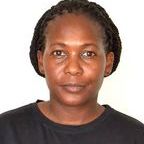
Wendy Kunodzia Bsc
Rehabilitation Officer, Zimbabwe Prisons and Correctional Service, Zimbabwe
Migrant Women in Prisons: Italian Practices and Strategies for Action (PID136)
Parallel Workshops
Migrant Women in Prisons: Italian Practices and Strategies for Action (PID136)
9.30am – 10am EST, 20 February 2025 ‐ 30 mins
Parallel Workshops
The intersection of gender and migration significantly exacerbates the challenges faced by female prisoners, particularly foreign female prisoners mainly from developing countries. Many of these women experience traumatic personal and migration histories; the growing number of migrants in European prisons-about 20 percent in Europe and 30 percent in Italy-makes it necessary to ensure rights and meet special needs in accordance with the Bangkok Rules. Access to personalized treatment is often hindered by the lack of language and cultural mediation, difficulties in working with diplomatic authorities, and the absence of standardized procedures for residency and protection applications. This panel aims to explore and share strategies to combat these challenges, . The insights offered by Bocconi University's legal clinic in Bollate prison will inform discussion and comparison with practices in other countries.Speakers


Reflections on Implementing a Women’s Strategy Within the New Zealand Corrections System: Successes, Challenges and Opportunities (PID086)
Parallel Workshops
Reflections on Implementing a Women’s Strategy Within the New Zealand Corrections System: Successes, Challenges and Opportunities (PID086)
9.30am – 10am EST, 20 February 2025 ‐ 30 mins
Parallel Workshops
This presentation highlights how purposeful investment in a gender and culturally responsive, trauma-informed model within the prison environment has led to positive transformation. This includes the introduction of full body scanning technology, responsive custodial staff learning and development pathways, and the establishment of a new position of Deputy Commissioner Women’s prisons to support the women’s prisons as a network.
Speakers

Kym Grierson
Deputy Commissioner Women's Prisons, Ara Poutama | Department of Corrections, New Zealand

Ben Storey
Chief Nurse - Director Physical Health, Ara Poutama | Department of Corrections, New Zealand
Pseudo Families as a Way of Coping with Incarceration by Female Offenders in South Africa (PID028)
Parallel Workshops
Pseudo Families as a Way of Coping with Incarceration by Female Offenders in South Africa (PID028)
9.30am – 10am EST, 20 February 2025 ‐ 30 mins
Parallel Workshops
Speakers

Tshilidzi Munarini MA
Assistant Director: Security Services, Department of Cooperative Governance and Traditional Affairs (CoGTA)
Coffee Break
Coffee Break
Coffee Break
10am – 10.30am EST, 20 February 2025 ‐ 30 mins
Coffee Break
Leading with Resilience: Surviving and Thriving as a Woman Leader in Corrections (PID201)
Plenary
Leading with Resilience: Surviving and Thriving as a Woman Leader in Corrections (PID201)
10.30am – 11.15am EST, 20 February 2025 ‐ 45 mins
Plenary
This presentation aims to inspire and empower attendees by showcasing the resilience and achievements of women in corrections, while providing actionable insights for fostering gender equality and leadership in the field. Dr. Falcon will capture the essence of her leadership throughout her career recounting her progression from a novice clinician to a CEO, highlighting the gender-specific challenges she faced along the way. She will share personal stories of overcoming obstacles and breaking barriers in a predominantly male-dominated field. Anecdotes about her female role models’ pioneering role in healthcare and corrections will illustrate a legacy of elevating women in business. Dr. Falcon will discuss the distinct challenges faced by women healthcare staff, correctional officers, and those from ethnic minorities within the correctional system. Insights into the daily realities and systemic issues that these women navigate will be provided, offering a comprehensive view of their experiences. Drawing from her extensive experience and consultations with women leaders across numerous U.S. agencies, Dr. Falcon will illuminate the key traits and best practices that define the most successful women professionals in corrections. She will delve into compelling case studies of female leadership, showcasing transformative culture and change management efforts, and illustrating powerful, effective leadership strategies that have driven significant progress in the field.Speakers

Shaping the Future of Corrections Through Leadership: Insights from Women Leaders Around the World (PID061)
Plenary
Shaping the Future of Corrections Through Leadership: Insights from Women Leaders Around the World (PID061)
11.15am – 12.15pm EST, 20 February 2025 ‐ 1 hour
Plenary
In this Panel, Shaping the Future of Corrections Through Leadership: Insights from Women Leaders Around the World, attendees will hear from accomplished women leaders from across the globe as they share their perspectives on shaping the future of corrections and public legal services. Panellists will explore the challenges and opportunities unique to leadership in diverse cultural and institutional contexts, examining strategies to foster diversity, equity, and inclusion. They will also discuss their personal journeys of overcoming barriers as women in traditionally male-dominated fields, offering valuable insights into resilience, innovation, and leadership excellence. The discussion will highlight how women’s leadership is driving innovation, advancing justice systems, and delivering transformative outcomes for communities worldwide. Join us for an enriching exchange of ideas with global leaders at the forefront of public sector excellence.Speakers


LaMakhosini Phindile Dlamini
Commissioner General, His Majesty’s Correctional Services, Kingdom of Eswatini

Ioana Morar
Deputy General Director, National Administration of Penitentiaries, Romania
Lunch
Lunch
Lunch
12.15pm – 1.30pm EST, 20 February 2025 ‐ 1 hour 15 mins
Lunch
Transgender Women in Carceral Settings, International Reflections and Perspectives (PID100)
Parallel Workshops
Transgender Women in Carceral Settings, International Reflections and Perspectives (PID100)
1.30pm – 2pm EST, 20 February 2025 ‐ 30 mins
Parallel Workshops
Within carceral contextx, trans women face particular challenges while being incarcerated, that this panel foregrounds, and considers across four prison jurisdictions. This panel is composed of three presentations, each with very different focus, although cumulatively these presentations will provide unique and powerful insights into various aspects of the experiences of trans women across various prison systems:Annette Bromdal, UniSQ, Australia.
Where do incarcerated trans women prefer to be housed and why? Adding nuanced understandings to a complex debate through the voices of formerly incarcerated trans women in Australia and the United States
Chontit Chuenurah, Thailand Institute of Justice (TIJ), Thailand.
Reflections on the study TIJ completed on pathways of trans prisoners to women Thai prisons, the current situations in Thailand (statistics, SOP, and initiatives), the lack of specific focus on the treatment in people with gender diversity in prison in the international standards.
Matt Maycock, Monash University, Australia.
What are the [transgender] pains of imprisonment that trans women experience within prison settings, extending and diversifying the pains of imprisonment discourse in Scotland.
Each paper makes a unique contribution to the overarching focus of the panel, in illuminating and analysing the experiences of trans women in prisons in each of the prison jurisdictions considered.
Speakers


Chontit Chuenurah
Director of the Office for the Bangkok Rules and Treatment of Offenders, Thailand Institute of Justice, Thailand
Understanding Women's Pathways to Prison: A Psycho-Social Analysis of Trauma, Victimization, and Incarceration Experiences (PID155)
Parallel Workshops
Understanding Women's Pathways to Prison: A Psycho-Social Analysis of Trauma, Victimization, and Incarceration Experiences (PID155)
1.30pm – 2pm EST, 20 February 2025 ‐ 30 mins
Parallel Workshops
Explore the untold stories of women behind bars and uncover the hidden pathways that lead to female imprisonment. This compelling session will delve into the intricate web of trauma, victimization, and socio-economic pressures that often drive women into the criminal justice system. Conducted within the culturally rich setting of Kerala Women’s Jail, the research employs a powerful mixed-methods approach to bring these narratives to life. Through real stories and innovative insights, discover how early experiences of abuse, mental health struggles, and systemic vulnerabilities shape women’s journeys into incarceration.The session will also highlight groundbreaking practices that can transform women’s prison experiences, from trauma-informed care and mental health support to programs that preserve vital family bonds, such as mother-child visitation. You’ll gain a deeper understanding of how prison environments can be redesigned to prioritize healing and rehabilitation, ensuring a more compassionate approach to justice.
Join us to engage with thought-provoking questions: Can breaking the cycle of trauma reduce recidivism among women? How can we better support incarcerated mothers and their children? What does a truly rehabilitative women’s prison look like? This presentation is a must-attend for anyone interested in rethinking women’s corrections and fostering systemic change. Be prepared to be inspired and challenged as we reimagine justice for incarcerated women.
Speakers

Ameenul Abdullah Kozhithara Shameer
Assistant Professor, Nehru Arts and Science College, Coimbatore, India

Beulah Shekhar
Improving Rehabilitative Practices by Reconceptualizing the Risk, Need, and Responsivity Principles for Women (PID116)
Parallel Workshops
Improving Rehabilitative Practices by Reconceptualizing the Risk, Need, and Responsivity Principles for Women (PID116)
1.30pm – 2pm EST, 20 February 2025 ‐ 30 mins
Parallel Workshops
This presentation will focus on research evidence supporting the need for a reformulation of the core rehabilitation principles of Risk, Need, and Responsivity (RNR), which were primarily developed with justice-involved men in mind. Each principle will be discussed in turn regarding the ways in which they could be conceptualized, operationalized, and more effectively applied with women. Evidence to support proposed refinements will come from the cumulative research on gender-responsive risk assessment (including the Women’s Risk Needs Assessment), as well as girls’/women’s pathways to crime. In short, women do not pose nearly as much risk for antisocial behavior as men; some of women’s risk factors and needs for treatment are similar to men’s, but many others are distinct and remain unmeasured with male-based risk models; and gender should be at the forefront of RNR rather than relegated to responsivity efforts aimed at simply accommodating the “inconvenience” of a woman’s gender and/or race in correctional settings. The presenter will invite debate and discourse from audience participants to determine conceptual and operational challenges and strengths in the reformulation of the principles in practice.Speakers

Beyond the Uniform: Navigating Gender, Culture, and Emotional Labour in Corrections (PID048)
Parallel Workshops
Beyond the Uniform: Navigating Gender, Culture, and Emotional Labour in Corrections (PID048)
1.30pm – 2pm EST, 20 February 2025 ‐ 30 mins
Parallel Workshops
Join Nicola Guthrie-Smith and Tarmi A’Vard as they bring two powerful perspectives on the challenges faced by women in corrections. Nicola, with experience in prisons across three Australian states, will shed light on the persistent cultural barriers within correctional systems and their impact on rehabilitation efforts. She’ll explore the gendered dynamics in the workforce and discuss the psychological toll of the prison environment on both staff and prisoners. Tarmi will broaden the conversation by focusing on the emotional labour involved in corrections and its effects on families. With insights from her personal and professional experience, she will emphasise the importance of building resilience through targeted support, such as mental health services and peer networks. This session will offer a compelling look at how to create a more collaborative, supportive environment that nurtures the well-being of both staff and their families.Speakers
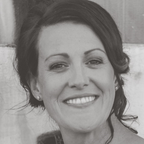

Transforming Incarceration: Architectural Innovations for the Rehabilitation of Women at Limerick Female Prison (PID137)
Parallel Workshops
Transforming Incarceration: Architectural Innovations for the Rehabilitation of Women at Limerick Female Prison (PID137)
1.30pm – 2pm EST, 20 February 2025 ‐ 30 mins
Parallel Workshops
This presentation explores innovative architectural and environmental design practices that enhance the well-being and rehabilitation of women in Limerick Female Prison. It highlights the importance of creating spaces that foster a supportive environment, addressing the unique needs of incarcerated women. The presentation discusses key design elements, such as natural light, green spaces, and communal areas, which contribute to mental health and social interaction. It also emphasizes the integration of programs that empower women through skill development and education, reinforcing a holistic approach to rehabilitation. By showcasing successful case studies and best practices, the presentation aims to inspire future developments in prison design that prioritize humane treatment and support the reintegration of women into society. Elaborating on her impression of the new female prison, a life sentence prisoner reflected - “We have windows to look out, ‘go to the window,, you can actually breathe now.’ To me, that is huge.”Speakers

Donna Creaven
Director, EuroPris - European Organisation of Prison and Correctional Services, Europe
Should We Imprison Pregnant Women? Lived Experiences, Institutional Barriers, and Policy Recommendations (PID059)
Parallel Workshops
Should We Imprison Pregnant Women? Lived Experiences, Institutional Barriers, and Policy Recommendations (PID059)
1.30pm – 2pm EST, 20 February 2025 ‐ 30 mins
Parallel Workshops
Women in prison have distinct reproductive well-being needs. Most are of reproductive age, and many are mothers. Their reproductive well-being concerning menstruation, childbearing, and newborn care are often overlooked. Prison reproductive health care in many countries is not a priority policy area, and is often constrained by limited resources, particularly in low-income countries such as the Philippines. The ultimate goal of this paper is to explore the experiences and challenges of incarcerated pregnant women and institutional barriers and provide policy recommendations. This research project used a qualitative inductive approach to explore imprisoned women’s pregnancy experiences and institutional barriers. The project found that the participants’ experiences of childbearing in prison were reflected in three overarching themes: a) Lack of autonomy over pregnancy, b) Reduced capacity to manage discomforts and needs, and c) Coping with prison deprivations. These accounts embody women’s experiences of how imprisonment disrupts Filipino women’s childbearing and mothering experiences. Furthermore, the results illustrated how the women navigate the prison regime to address their needs and cope with the pains of imprisonment.This paper highlights the urgent need to reform correctional policies and practices to address the distinct needs of incarcerated women. Given the profound impact of imprisonment and lack of support on the well-being of pregnant women and newborns, the Government should consider non-custodial measures such as house arrest and electronic monitoring.
Speakers

Dr Romulo Nieva Jr RN, MHSS, PhD
Associate Professor, University of the Philippines Manila- College of Public Health, Philippines
Incarcerated Transgender People in Belgian Prisons: An Overview of the Belgian Policy and the Lived Experiences of Incarcerated Transgender Persons (PID078)
Parallel Workshops
Incarcerated Transgender People in Belgian Prisons: An Overview of the Belgian Policy and the Lived Experiences of Incarcerated Transgender Persons (PID078)
2pm – 2.30pm EST, 20 February 2025 ‐ 30 mins
Parallel Workshops
Incarcerated transgender persons face unique challenges, highlighted by the complexities of classification and their specific needs within a gendered prison environment. Recognising these needs, the Belgian prison administration adopted guidelines on the management and care of incarcerated transgender persons in 2023. This framework is rooted in the Belgian Prison Act, with the principle of normalisation at its heart. This presentation traces the origins of these guidelines, delving into their foundational principles and addressing the practical challenges encountered during implementation. Furthermore, we situate the Belgian approach within broader European trends, underscoring the volatility of policies surrounding the placement and care of transgender individuals in correctional settings. Finally, we contextualise these guidelines within existing empirical research on the lived experiences of incarcerated transgender persons. These findings reveal the importance of gender as an organising principle in prison regimes, bearing significant implications for incarcerated cisgender men and women as well. The presentation of Belgian policy and findings from empirical research on incarcerated transgender individuals is intended to foster discussions on placement criteria for incarcerated transgender persons, on overcoming implementation issues requiring fundamental changes in prison staff attitudes, and on balancing the need for clear, workable guidelines with the importance of individualised decision-making in the management and care of incarcerated transgender persons.Speakers


Ils Milis
Strategic director, Directorate general for Penitentiary Institutions, Belgium
Fatal Peril: Unheard Stories from the IPV-to-Prison Pipeline in the United States (PID031)
Parallel Workshops
Fatal Peril: Unheard Stories from the IPV-to-Prison Pipeline in the United States (PID031)
2pm – 2.30pm EST, 20 February 2025 ‐ 30 mins
Parallel Workshops
This session will share findings from a groundbreaking study examining how people experiencing intimate partner violence (IPV) are criminalized for actions they took to survive abuse. Using a sample of 649 cisgender women and transgender people incarcerated for murder and manslaughter at two California prisons, this study quantified the prevalence of IPV and the potential lethality of the abuse; described the nature of the relationship between the survivor-defendant and the decedent as it relates to the circumstances of the offense; and identified the extent to which the criminal legal system accounts for IPV. Importantly, this study is the first time both the Composite Abuse Scale and the Danger Assessment, validated instruments to assess intimate partner violence and intimate partner homicide respectively, were used with an incarcerated population. Findings revealed nearly three out of four respondents were abused by an intimate partner the year before their offense. Additionally, about two-thirds of those being abused were at extreme risk of being killed by their intimate partner. Disturbingly, 59.9% reported ever being strangled (“choked”) by their partner. Of those who reported ever being strangled, 78.1% were choked more than once or had passed out, blacked out, or felt dizzy, suggesting a probable traumatic brain injury. No statistically significant differences existed in intimate partner homicide risk by decedent category, suggesting no matter who was killed, respondents were in potentially lethal abusive relationships. This finding underscores that IPV is a form of violence with diffuse and broad consequences beyond the relationship.Speakers

Debbie Mukamal
Executive Director, Stanford Criminal Justice Center, Stanford Law School, USA

Trauma-Informed Care in Women’s Prisons in England – From Research to Practice (PID067)
Parallel Workshops
Trauma-Informed Care in Women’s Prisons in England – From Research to Practice (PID067)
2pm – 2.30pm EST, 20 February 2025 ‐ 30 mins
Parallel Workshops
Since 2015, given the high rates of trauma amongst women in prison, women's prisons in England, UK have been striving to provide trauma-informed and responsive care. This workshop explores the findings from research examining the perspectives of people living and working in women's prisons about the barriers and enablers to trauma-informed care within a prison setting. It then highlights the range of ways that this research has been translated into practical actions within and across women's prisons, at the organisational and system level, as well the ways in which the capabilities of, and opportunities for, staff to work in trauma-informed and responsive ways have been developed. Finally, the workshop will showcase some of the innovative services and interventions that have been implemented with women in prison to improve their experiences of imprisonment.Speakers

Dr Jude Kelman PhD
Directorate Lead Psychologist, Female Estate England, His Majesty's Prison and Probation Service (HMPPS), UK

Carlene Dixon
Women's Group Prison Group Director, His Majesty's Prison and Probation Service (HMPPS), UK
Distance and Proximity in Staff-Prisoner Relationships in Women’s Prisons (PID045)
Parallel Workshops
Distance and Proximity in Staff-Prisoner Relationships in Women’s Prisons (PID045)
2pm – 2.30pm EST, 20 February 2025 ‐ 30 mins
Parallel Workshops
The Bangkok rules recognize the vulnerability of incarcerated women to sexual abuse and harassment from staff. These issues have been at the forefront of attention in the Netherlands, after highly publicized cases of sexual abuse and inappropriate relations in Dutch women’s prisons. In this paper we will (1) sketch the Dutch context of women’s prisons, including the cases of staff misconduct; (2) discuss the impact these cases have had on staff-prisoner relationships; and (3) suggest recommendations for improving safety in women’s prisons. Two governors of women’s prisons will outline the cases in their prisons and discuss the direct impact on incarcerated women and staff. This will be combined with findings from an independent research study, conducted in three women’s prisons in the Netherlands.This presentation will address the difficulties of finding a good balance between distance and proximity in the relationship between staff and incarcerated women. It is necessary to discuss the boundaries of healthy and constructive staff-prisoner relationships, give staff tools to address ethical challenges and moral dilemmas, and create safe and accessible options for incarcerated women to bring attention to cases of staff sexual misconduct. Additionally, it is important to recognize that a desire for intimacy and sexual contact can play a role in social relations among incarcerated women, and in their interactions with staff. The paper will finish with a discussion of practical recommendations for preventing and detecting staff (sexual) misconduct, including monitoring mechanisms and adequate reporting options for incarcerated women.
Speakers



Carving a New Path | Women Designing for Women (PID158)
Parallel Workshops
Carving a New Path | Women Designing for Women (PID158)
2pm – 2.30pm EST, 20 February 2025 ‐ 30 mins
Parallel Workshops
Women Designing for Women establishes a new paradigm, breaks with the tradition of men designing space and places for women by adapting men-centric correctional models to serve the needs of incarcerated women. The new Heart River facility reflects the experiences and input of current and former residents of the North Dakota correctional system. The lead designer embedded the feedback of the women, translating feedback into the design, drawing from her own personal experiences as a girl, adolescent, woman, and mother to create healthy, trauma-informed spaces full of daylight. Spaces for living, reflecting, socializing, and restoring relationships with their families and children.The new 296-bed program rich facility features apartment style living units that promote healthy, normalized environments. Spaces for respite, gathering, and movement offering residents opportunities to build community connections, trustful relationships with staff, and a sense of community, supporting DOCR’s philosophical mission that encourages growth, self-improvement, and positive experiences.
Speakers


Connie Hackman Rivinius
Warden, Heart River Correctional Center, North Dakota Department of Corrections and Rehabilitation, USA
The Application of the Bangkok Rules though Law and Court Practice: The Sentencing of Pregnant Women and Mothers of Dependent Children in England and Wales (PID102)
Parallel Workshops
The Application of the Bangkok Rules though Law and Court Practice: The Sentencing of Pregnant Women and Mothers of Dependent Children in England and Wales (PID102)
2pm – 2.30pm EST, 20 February 2025 ‐ 30 mins
Parallel Workshops
When the Bangkok Rules Resolution was passed in December 2010 there was no specific provision for the sentencing of mothers or pregnant women in England and Wales (one of three legal jurisdictions within the United Kingdom). Since 2011, case law, sentencing guidelines and alternative sanctions, including women-specific ‘problem solving’ courts, have been developed which, in accordance with Rule 64, recognise that non-custodial measures should be preferred for pregnant women or women with dependent children. They are testimony to the law's dynamic capabilities.By reflecting on the process which has created a sentencing framework which recognises the impact of maternal incarceration on children, and the harms of imprisonment to pregnant women, we can identify pathways to improved application of the Bangkok Rules in courts and legal processes.
The story of sentencing development in England and Wales has international relevance; it examines the gendered nature of legal proceedings and punishment, and demonstrates why the full implementation of the Bangkok Rules remains a critical endeavour.
Speakers

Tomboys’ Pathways to Prison in Thailand: Insubordination, Support, Sacrifice, and Suffering (PID058)
Parallel Workshops
Tomboys’ Pathways to Prison in Thailand: Insubordination, Support, Sacrifice, and Suffering (PID058)
2.30pm – 3pm EST, 20 February 2025 ‐ 30 mins
Parallel Workshops
These findings underscore the importance of understanding the intersections of gender, sexuality, and criminality, particularly for marginalised groups like Tomboys. The research calls for more inclusive, gender-sensitive approaches in the criminal justice system to address the unique challenges faced by gender-sexual minorities, ultimately aiming for a more equitable and humane approach to justice.
Speakers

Michelle Ryan M.A
Sessional Staff Member, School of Criminology and Criminal Justice, Griffith University, Australia

Dr Yodsawadi Thipphayamongkoludom PhD
Project Manager for the Office for the Bangkok Rules and Treatment of Offenders, Thailand Institute of Justice, Thailand
Reclaiming the Narrative: How the Women’s Justice Pathways Model is Creating Real Justice with/for Women (PID165)
Parallel Workshops
Reclaiming the Narrative: How the Women’s Justice Pathways Model is Creating Real Justice with/for Women (PID165)
2.30pm – 3pm EST, 20 February 2025 ‐ 30 mins
Parallel Workshops
Centering on the lived expertise of formerly incarcerated women leaders, this session will explore the WJP and how it can be used to dismantle the false narratives that permeate research and praxis, reinscribe systems of power and oppression, and perpetuate women’s criminalization and mass incarceration. It will include an overview of how the WJP has been applied to inform cross-sector decarceration and harm reduction strategies, architect peer-led diversion and reentry care coordination models and advance transformative policy changes that end the criminalization of women’s survival.
Speakers

Gender-Responsive Sentencing Practices in Southeast Asia - The Gap Between International Commitments and Domestic Realities (PID046)
Parallel Workshops
Gender-Responsive Sentencing Practices in Southeast Asia - The Gap Between International Commitments and Domestic Realities (PID046)
2.30pm – 3pm EST, 20 February 2025 ‐ 30 mins
Parallel Workshops
An insightful session exploring Gender-Responsive Sentencing Practices in Southeast Asia: Bridging International Standards and Domestic Realities. This presentation will unveil findings from a recent study conducted in Cambodia, examining the critical gap between international commitments, such as CEDAW and the UN Bangkok Rules, and the realities of sentencing practices for women in Southeast Asia.As many justice systems in the region undergo transition and development, the need for gender-responsive approaches becomes increasingly urgent. Despite legal frameworks advocating for gender-sensitive treatment and non-custodial measures, numerous women continue to face harsh custodial sentences for minor offenses, leading to family separation and exacerbating socio-economic challenges.
We will discuss the barriers preventing the full implementation of these international standards and highlight the necessity of explicit gender-responsive provisions within national laws. Comparative examples from Australia, Indonesia, and Singapore will enrich our understanding of diverse approaches to similar challenges, showcasing the importance of consistent implementation of gender-responsive practices during this period of judicial evolution.
This session will outline key policy recommendations aimed at fostering positive change, including judicial training, expanding rehabilitation programs, and adopting non-custodial measures for women with caregiving responsibilities.
Attendees will leave with actionable insights and strategies to advocate for meaningful reforms that align domestic practices with international standards. By participating, you will contribute to the vital conversation on supporting the dignity and rights of women in conflict with the law, helping shape equitable justice systems across the region.
Speakers


Working “From the Heart” Under Challenging Circumstances: Thailand’s Probation Workers Discuss Electronically Monitored Parole for Women (PID044)
Parallel Workshops
Working “From the Heart” Under Challenging Circumstances: Thailand’s Probation Workers Discuss Electronically Monitored Parole for Women (PID044)
2.30pm – 3pm EST, 20 February 2025 ‐ 30 mins
Parallel Workshops
This presentation discusses findings from an exploratory study undertaken with Department of Probation personnel in Thailand. The goal of this research was to examine staff perspectives, experiences, and practices regarding the support of women (formerly imprisoned for breaching illicit drug law) on electronically monitored parole. According to government rhetoric, electronically monitored parole should be rehabilitative, assist reintegration, and operate per international human rights standards and norms. This includes gender-responsiveness, as delineated in The United Nations Rules for the Treatment of Women Prisoners and Non-custodial Measures for Women Offenders (the Bangkok Rules). Yet, gender was mostly elucidated as immaterial and at best, women receive nominal support from a probation service labouring ‘from the heart’ with limited funding and high workloads. In light of our research findings and to better address the needs of formerly imprisoned women in Thailand, we provide recommendations for change utilising the Bangkok Rules and UNODC best practice guidelines for non-custodial measures.Speakers

Napat Rakkitsiri M.A
Project Coordinator, Office for the Bangkok Rules and Treatment of Offenders, Thailand Institute of Justice, Thailand

Associate Professor Samantha Jeffries
Associate Professor, Griffith University, Australia
Supporting Women Correctional Staff in Community Corrections (PID076)
Parallel Workshops
Supporting Women Correctional Staff in Community Corrections (PID076)
2.30pm – 3pm EST, 20 February 2025 ‐ 30 mins
Parallel Workshops
Gender-responsive (GR) correctional practices emphasise the crucial role of well-trained staff, especially women, in supporting women offenders' rehabilitation and reintegration. Singapore's success in reducing recidivism rates among women is attributed to the Singapore Prison Service's (SPS) GR approach and robust community support. Staff working with women offenders undergo specialised training to understand women offenders’ unique needs and employ effective GR principles, including relational, trauma-informed, and strengths-based approaches. This comprehensive training extends from incare to aftercare settings and community partners, ensuring a consistent approach throughout the rehabilitation process. Staff benefit from individual coaching, case consultations, and targeted upskilling programmes. Community Corrections personnel receive additional support through clinical supervision, safety training, and mental health support via the WeWorkWell framework. To enhance the rehabilitation ecosystem, efforts are made to connect incare and community agencies through learning journeys and engagement sessions. These initiatives align with SPS's goals of supporting desistance through community resource mobilisation and staff development. While still in the early stages of expansion, future efforts aim to ensure the sustainability of GR practices within organisations. Ongoing adaptation to evolving research and offender needs remains crucial to enhance staff effectiveness and improve outcomes for women offenders in community corrections.Speakers

Siti Nurzafirah Ishak
Manager, Community Corrections, Singapore Prison Service, Singapore
The Gender Differences in Treatment Needs of Drug Inmates (PID017)
Parallel Workshops
The Gender Differences in Treatment Needs of Drug Inmates (PID017)
2.30pm – 3pm EST, 20 February 2025 ‐ 30 mins
Parallel Workshops
Numerous studies have indicated that treatment programs designed based on the needs of male inmates are not necessarily applicable to female inmates. To fill the void, this study attempts to explore the gender differences in drug treatment needs of Category 1 and Category 2 drug offenders in Taiwan, and to gain an in-depth understanding of their similarities and differences, adapt to existing treatment options, and provide appropriate programs to meet the female drug addicts’ treatment needs.In order to adequately develop the survey questionnaire for formal sampling, the study conducted qualitative interviews with 16 drug offenders in 2023. Surveys were conducted with 779 male inmates from the Taoyuan, Taichung, and Kaohsiung Second Prisons, and 747 female inmates from the Taoyuan, Taichung, and Kaohsiung Women’s Prisons between January and May 2024.
The results show that women generally have a higher degree of adaptability to prison life and in-prison activities than men. Secondly, women’s needs for activities are higher than men, including counseling, education, competitive activities, etc. Family visitation days, holiday activities, and skills training are the most demanded rehabilitation activities for women. Besides, women need more courses for future career development, family maintenance, stress regulation, and emotional control and support. Finally, most female inmates support bringing children into the correctional system with them and believe that more resources should be provided to help them strengthen their knowledge and skills of educating children. The implications of the study are further discussed in the paper.
Speakers

Shu-Lung Yang PhD
Distinguished Professor , The Department and Graduate Institute of Criminology, National Chung Cheng University, Taiwan
Shuping Tzeng
Professor, The Department and Graduate Institute of Criminology, National Chung Cheng University, Taiwan
Coffee Break
Coffee Break
Coffee Break
3pm – 3.30pm EST, 20 February 2025 ‐ 30 mins
Coffee Break
Part of the Solution: Perspectives of Women with Lived-Experience (PID203)
Plenary
Part of the Solution: Perspectives of Women with Lived-Experience (PID203)
3.30pm – 4.30pm EST, 20 February 2025 ‐ 1 hour
Plenary
Speakers

Susan Kigula Natoolo
Lawyer, International Human Rights and Anti-Death Penalty Activist

Molly Crister M Avejar

TIJ Closing Remarks
Plenary
TIJ Closing Remarks
4.30pm – 4.45pm EST, 20 February 2025 ‐ 15 mins
Plenary
ICPA Closing Remarks
Plenary
ICPA Closing Remarks
4.45pm – 5pm EST, 20 February 2025 ‐ 15 mins
Plenary
Speakers


Chonburi Women’s Correctional Institution
Prison Visits
Chonburi Women’s Correctional Institution
7am – 2pm EST, 21 February 2025 ‐ 7 hours
Prison Visits
The Chonburi Women’s Correctional Institution, the main female facility in the Eastern region of Thailand, takes up a space of approximately 23 acres and has a capacity of 2,047 women. The space is divided into an internal area of approximately 10 acres and an external area of approximately 13 acres. The institution provides various contract work and internal vocational training programmes including food and beverages, laundry and telemarketing services (call centres). Additionally, it offers external vocational training, where women are taken to train in professional skills at locations around the prison or at the prison’s vocational training facilities, primarily aimed to develop career paths and prepare prisoners for reintegration upon release. Moreover, the Chonburi Women’s Correctional Institution operates a separate wing for pre-release centre, housing prisoners who have remaining sentences of less than three years to undergo pre-release programmes and re-entry preparation to support and facilitate their reintegration into society. The visit to the Chonburi Women’s Correctional Institution starts at 7.15 AM and finishes at 2.00 PM (arrive at the TIJ building).Thonburi Women’s Correctional Institution
Prison Visits
Thonburi Women’s Correctional Institution
7.45am – 1pm EST, 21 February 2025 ‐ 5 hours 15 mins
Prison Visits
The Thonburi Women’s Correctional Institution, situated on the outskirts of Bangkok, has the capacity to house 779 women whose sentence term is under ten years. The institution conducts various rehabilitation programmes. Moreover, a diverse vocational training programme, with collaboration from various network partners, are implemented to provide women with professional skills, based on the individual’s classification taking into account their pre-incarceration employment backgrounds, the desired career paths upon release, as well as the demands of the job market. The Thonburi Women’s Correctional Institution is also recognised for its dedication to post-release support, particularly through the development of a mobile application which received the innovation award from the Department of Corrections of Thailand. This application provides information on job availability and serves as a platform for formerly incarcerated individuals to share their inspiring stories related to their employment. The visit to the Thonburi Women’s Correctional Institution starts at 8.00 AM and finishes at 1.00 PM (arrive at the TIJ building).Women’s Correctional Institute for Drug Addicts
Prison Visits
Women’s Correctional Institute for Drug Addicts
7.45am – 1pm EST, 21 February 2025 ‐ 5 hours 15 mins
Prison Visits
The Women’s Correctional Institute for Drug Addicts, located in Pathum Thani Province, currently houses 705 incarcerated women convicted of drug-related offences, each serving sentences of less than 10 years. The facility covers roughly 20 acres, including 5 acres indoors and 15 acres outdoors. The institution conducts a diverse range of rehabilitation and vocational training programmes specifically designed for women to address their criminogenic needs. Alongside various contract work and internal vocational training programmes, the Hub-Poei café and restaurant serves as a vocational training facility for women, helping them to enhance their professional skills and prepare for reintegration into society.Central Women's Correctional Institution
Prison Visits
Central Women's Correctional Institution
8.15am – 12.30pm EST, 21 February 2025 ‐ 4 hours 15 mins
Prison Visits
The Central Women's Correctional Institution is the largest women's prison in Thailand, housing over 4,000 women serving various sentences, including those under sentence of death. The facility spans an area of approximately seven acres and is situated on Ngamwongwan Road in Bangkok. This institution serves as the birthplace of the "Inspire Project" (Kamlangjai Project), an initiative by Her Royal Highness Princess Bajrakitiyabha to provide support and assistance specifically to pregnant women and those with young children. In addition, the Central Women's Correctional Institution operates various vocational training facilities, allowing prisoners to learn new skills to enhance their employability. These include the "Krua Chuanchom Restaurant," where women undergo hands-on training in culinary arts. The visit to the Central Women's Correctional Institution starts at 8.30 AM and finishes at 12.30 PM (arrive at the TIJ building).
















































